Dubai has become a key port city along the Persian Gulf, and that status isn’t changing anytime soon. The metropolitan area is home to six million people, with nearly half being immigrants. Thanks to the emirate’s wide array of cultural attractions, you’ll experience both familiarity and diversity.
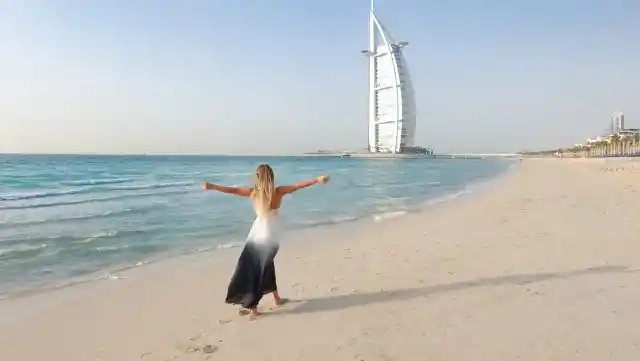
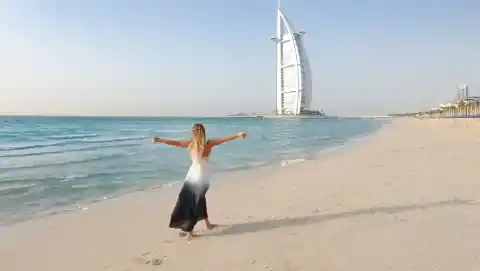
What awaits you in Dubai will truly surprise you. Whatever image you have of the Middle East, Dubai will likely defy it. It's a chance to see life from a whole new perspective—and we’re pretty sure you’ll be packing your bags in no time!
Emerging Fashion Hub
Get ready to explore your new environment—Dubai is fast rising as a fashion powerhouse. The city's fashion scene is thriving, thanks to skilled designers, numerous fashion events, and a bustling downtown fashion district.


Dubai has gained recognition on the global stage, with its styles making appearances on runways in New York and Paris. There’s no question that the creativity behind these designs brings a bold and fresh perspective to Western fashion.
Elite Women In Law Enforcement
Did you know that Dubai also has an all-female police unit? This specialized team was created to tackle issues like fraud and theft within the city. The emirate frequently assigns tasks requiring discreet handling—often managed by men—to these capable women.
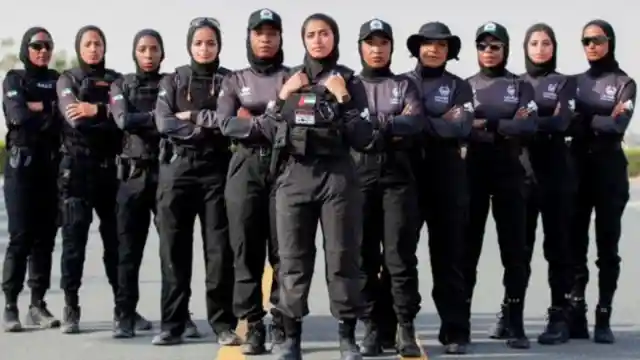
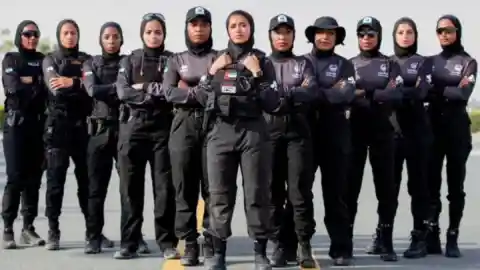
Officers from across the state are selected for this role, with bilingual skills being a must. It marks a major milestone for Muslim women in the community and highlights their growing presence in key public service roles.
A-List Celebrities
Dubai continues to achieve impressive milestones year after year, especially considering its once barren landscape. Remarkably, the city’s first skyscraper wasn’t built until 1979. One high-profile visit that caught global attention was Khloé Kardashian’s trip to Dubai.
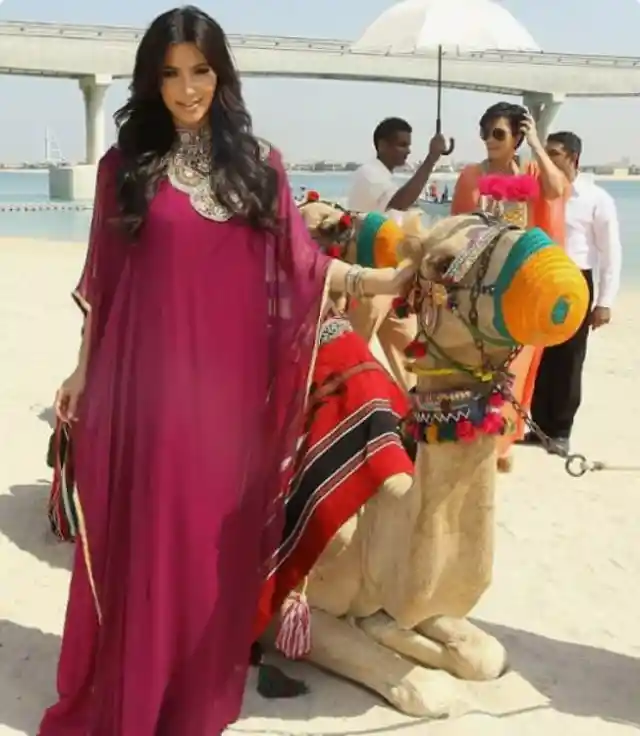
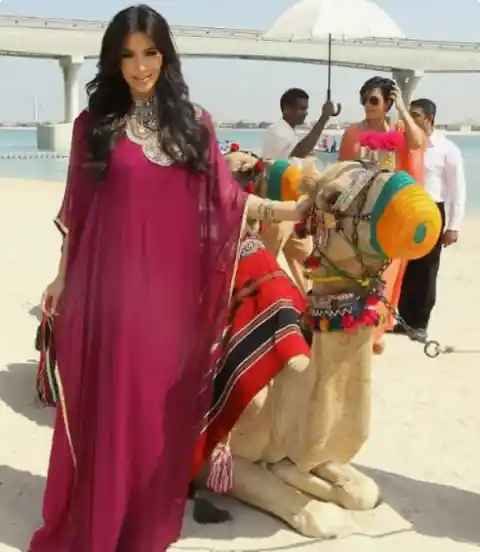
She embraced local culture by wearing traditional clothing and riding a camel. Her visit included hosting makeup classes, accompanied by her family and fellow reality stars. Khloé also indulged in shopping at Dubai’s renowned malls and took time to visit a special education center during her stay.
Stylish Patrols
Dubai is famous for its luxurious lifestyle—and that extends to its police force. The city’s law enforcement drives top-tier vehicles like Aston Martins, Lamborghinis, and Ferraris. If you’re going to get arrested anywhere, it might as well be in style.
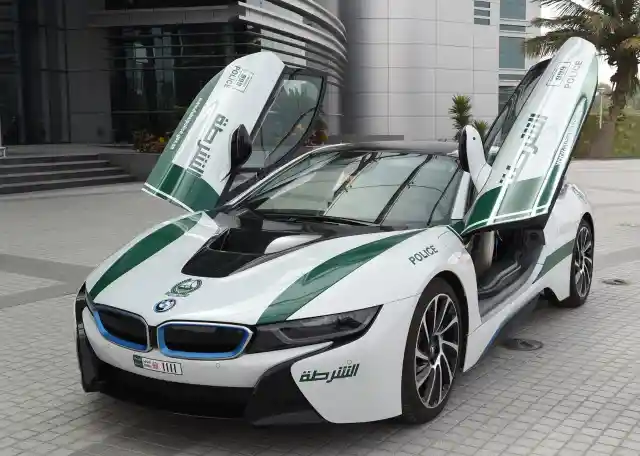
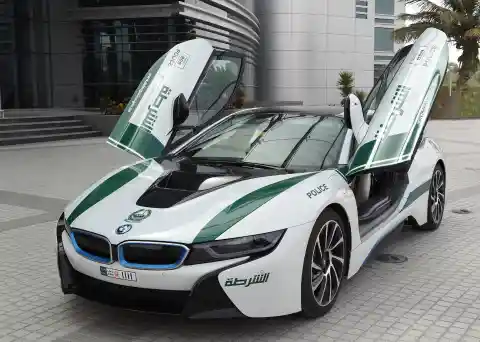
Each of these elite patrol cars costs roughly the same as a year of college tuition in the U.S.! Luckily, they’re rarely needed, as Dubai boasts one of the lowest crime rates in the world. This is largely due to strict laws that often lead to deportation or imprisonment for offenders. According to Numbeo’s Crime Index Rate, Dubai currently ranks as the 9th safest city globally.
Desert Diversity
Few cities showcase cultural contrasts as vividly as Dubai. One striking example is the sight of two women enjoying the beach—one in traditional Islamic dress, the other in a green bikini.
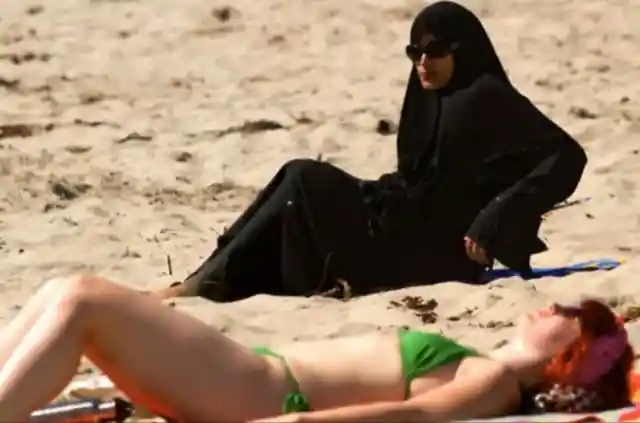
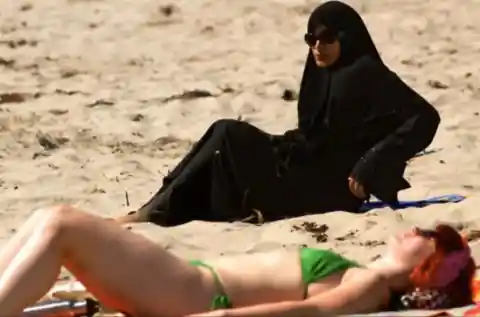
While bikinis are permitted on certain adult-friendly beaches, modest attire is expected in public spaces outside pool or beach areas. Despite appearances, many are surprised to learn how accepting Dubai can be of Western customs, blending tradition with modernity in a unique way.
Relaxed Dress Codes
Many people might be surprised to learn that Dubai’s dress code is actually more lenient than in many other places. Visitors are allowed to wear Western-style clothing in public, and women aren’t obligated to cover their heads if they choose not to.
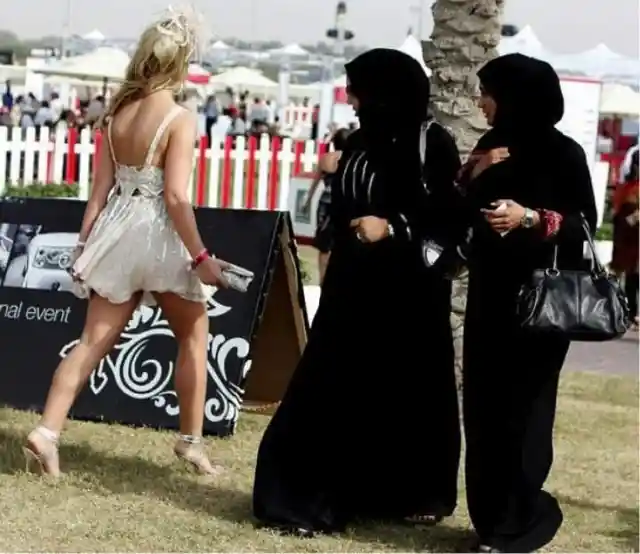
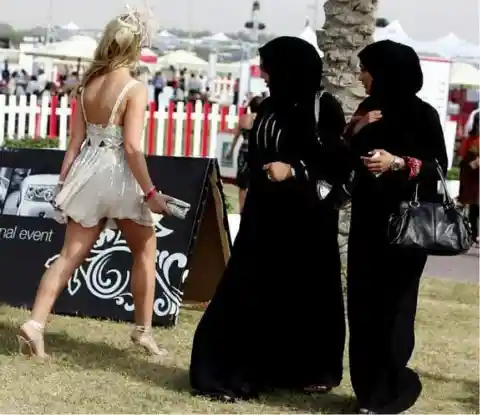
That said, revealing too much skin can upset locals, who may report it to authorities and ask you to change. It’s also important to remember that, although the overall dress rules are relaxed, headscarves and modest clothing are required when entering mosques.
The World’s Fastest Growing City
Does this image really need an explanation? It clearly shows how much Abu Dhabi has transformed. Back in 2005, the area was mostly barren desert with only a handful of tall buildings. Many locals doubted the wisdom of developing a city there, but those doubts were soon proven wrong. What you’re seeing now is a glimpse of Dubai’s thriving downtown.
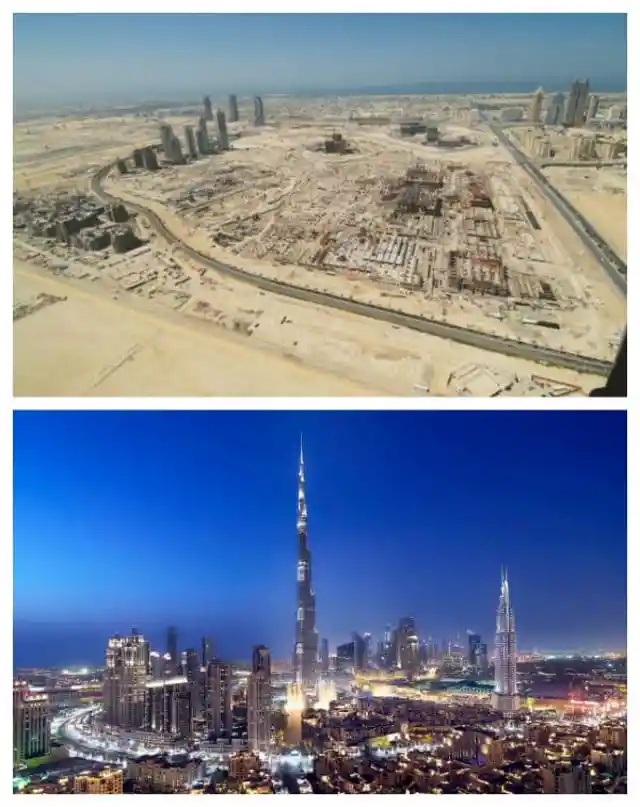
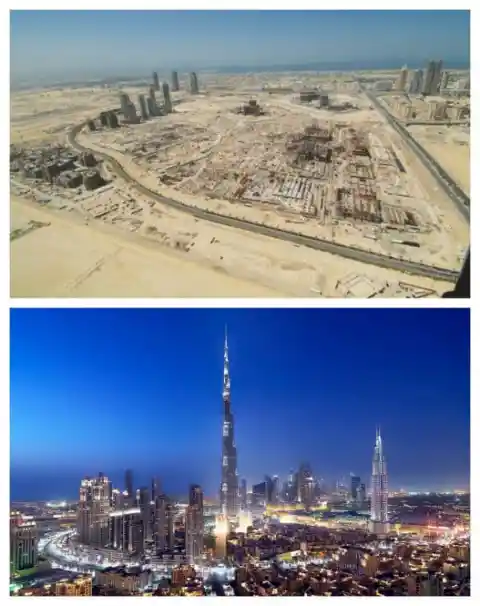
The view is nothing short of spectacular. What was once an empty wasteland has rapidly become a vibrant cosmopolitan hub, complete with lush parks, water fountains, and towering skyscrapers—all within just a few years. Truly amazing!
Comfortable Commutes
Living in an affluent city like Dubai comes with plenty of perks. Although the heat can be intense, the way they’ve tackled it is impressive. Take a look at this typical city bus stop—what sets it apart is the air-conditioned shelter, a luxury that would be rare anywhere else.
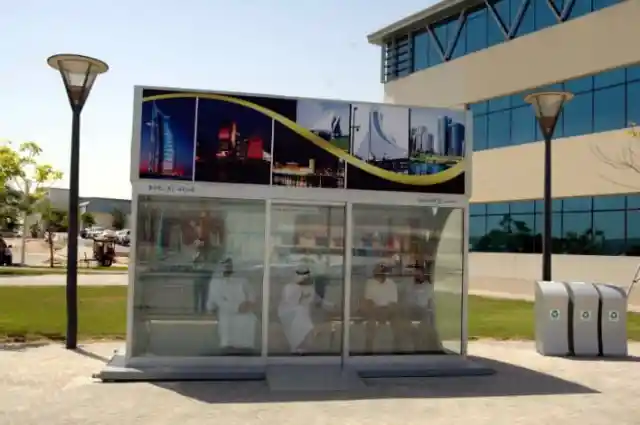
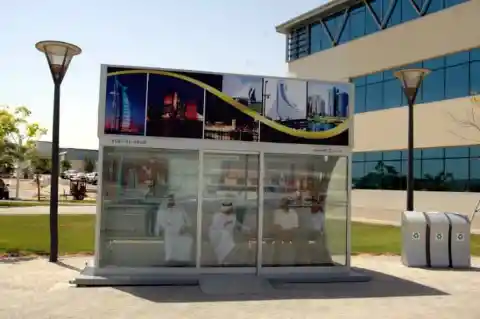
These cool pods provide welcome relief from the scorching Middle Eastern sun. With temperatures soaring above 120 degrees Fahrenheit due to the desert climate, spending too much time outdoors could quickly become unbearable. This setup is perfect for anyone who wants to arrive at work or school without being drenched in sweat.
Everything Is Gold-Plated
Dubai hosts the world’s largest gold market, according to estimates! When it comes to showcasing wealth, the people of this Gulf state are unapologetically bold. The city is so saturated with gold that having personal items gold-plated has become almost a tradition.
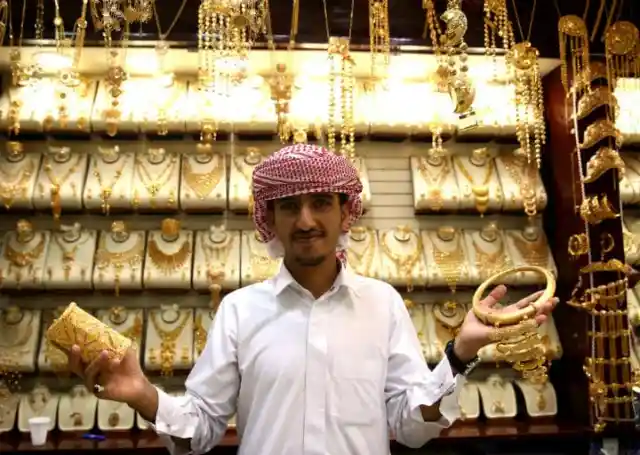
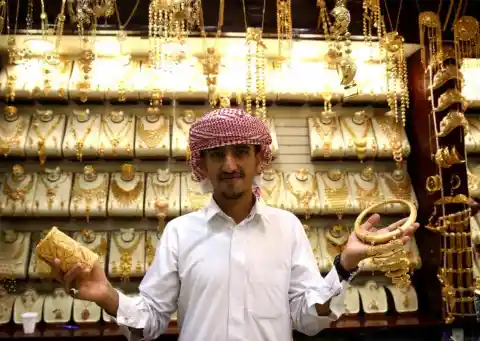
Gold is also widely used in local craftsmanship. If you’re looking to get something plated in gold, Dubai is definitely the place to be. That said, the abundance of gold doesn’t translate to cheap prices. Here’s a little secret: Dubai ranks among the most luxurious cities in the Arab world.
Sports At New Heights
We totally get it if the thought of attending a tennis match up here makes you nervous about heights. This astonishing feat of modern engineering, perched 1,000 feet above the ground, is attached to the Burj Al Arab hotel. Can you imagine how many shots have missed the mark from this lofty spot? If you plan to watch a match here, staying safe on the edge is key!
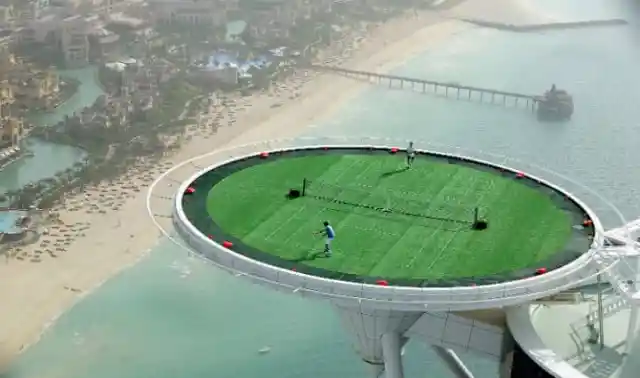
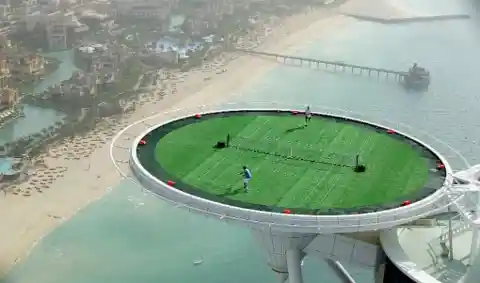
However, this court is no longer used for tennis—it was actually built as a publicity stunt for the 2005 Dubai Duty-Free Men’s Open. Although temporary, tennis greats Roger Federer and Andre Agassi used it as a striking photoshoot location. Eventually, the court was converted back into a helipad.
New Camel Jockeys
Camel racing is a long-established tradition that was updated in 2004. In Dubai, robot jockeys now replace human riders. This change was driven by concerns over child labor, as it was common for children to serve as jockeys in Gulf countries.
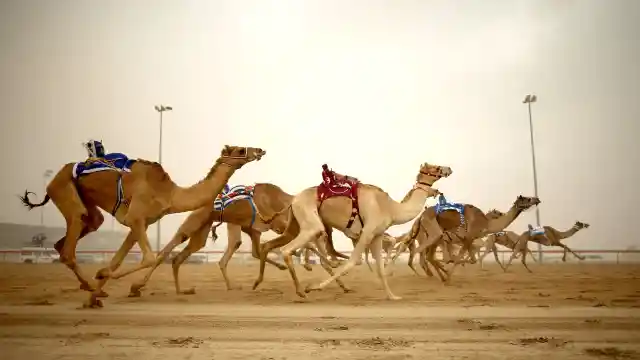
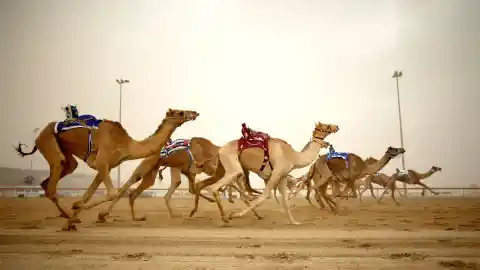
The UAE and Qatar have banned human jockeys, switching instead to robotic ones. The United Arab Emirates, where Dubai is located, was the first to take this step to combat child trafficking and abuse. Many people don’t realize that camel racing is actually a multi-billion-dollar industry.
Bigger And Better
While the phrase “Everything is bigger in Texas” is well-known, it could easily apply to Dubai as well. The city’s economy is rapidly advancing, seemingly matching Texas’s scale. Dubai shows no hesitation when it comes to constructing massive structures simply for the sake of grandeur.
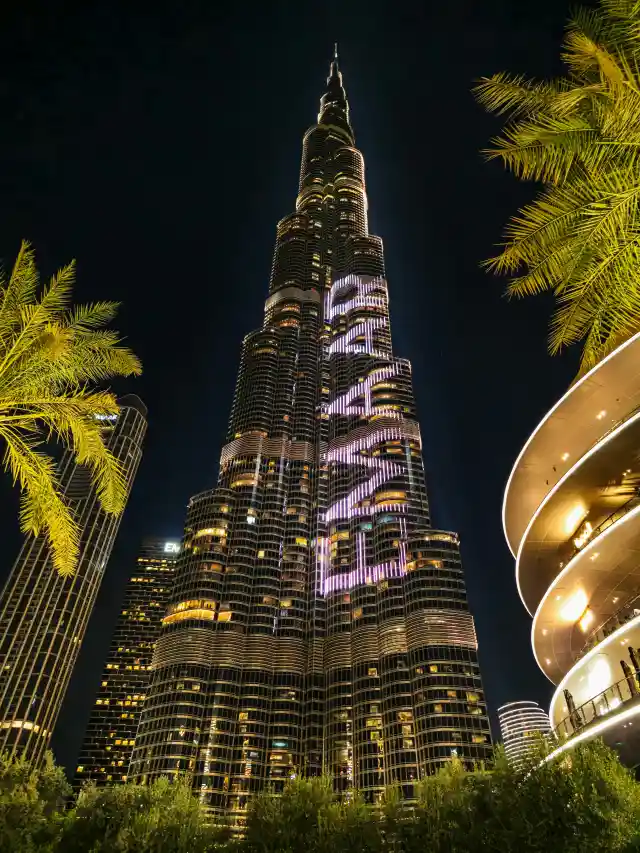
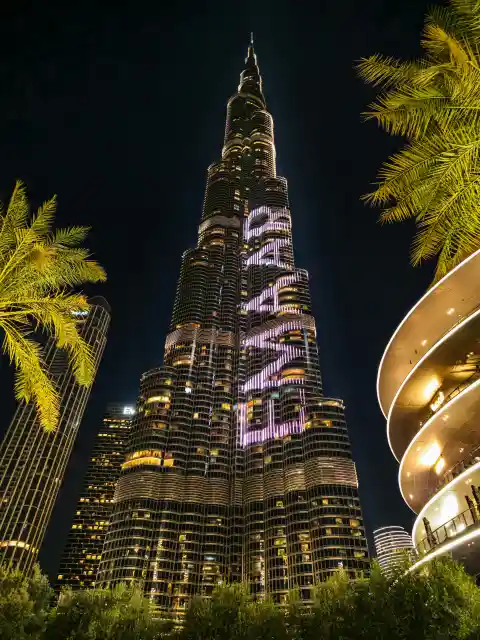
Among its landmarks are the Burj Khalifa—the tallest building in the world at 2,722 feet—one of the largest malls globally, and the biggest indoor ski resort on the planet.
Beaches For Women And Families
Many visitors are surprised to learn that Dubai has beaches exclusively designated for women and families. These spots are off-limits to single men. Everyone visiting these areas must adhere to strict dress codes, which require modest attire at all times—women certainly do not go without clothing.
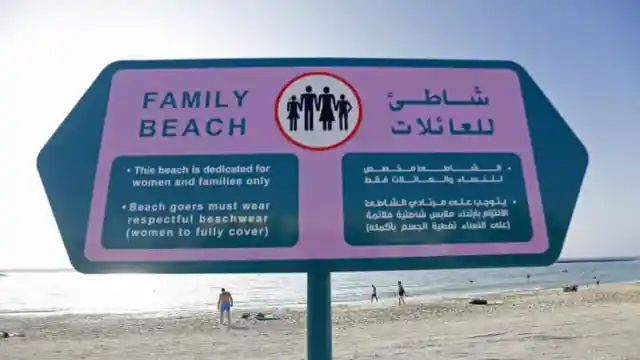
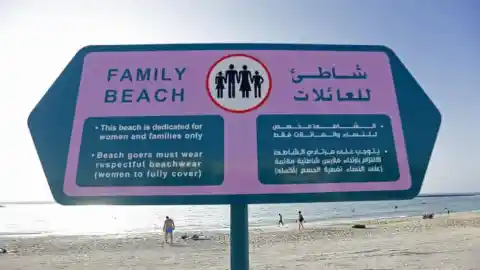
Locals appreciate having their own beach spaces, as it offers peace of mind and aligns with their religious and cultural values. This arrangement helps the community feel more at ease while enjoying the quieter, more private parts of the beach.
Public Displays Of Affection
Laws in Dubai and the broader UAE are much stricter than those in many Western countries. Even minor actions can attract legal consequences, so it’s important to be informed beforehand. Kissing and hugging should be kept private, as public displays of affection are generally frowned upon. Only married couples are permitted to hold hands in public.
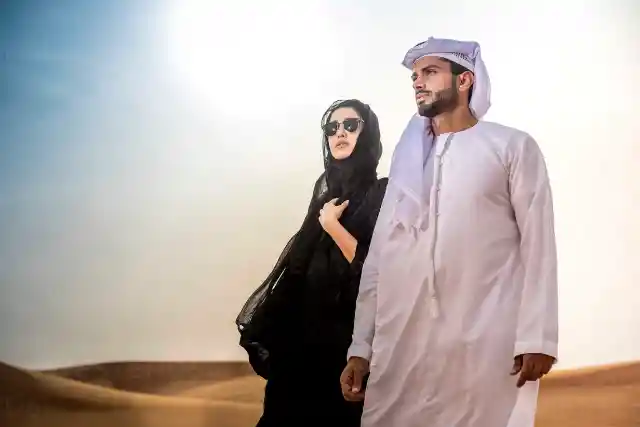
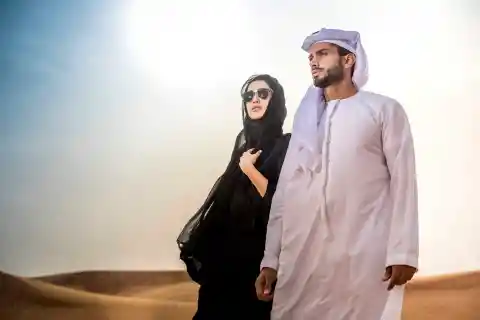
Physical contact between members of the same sex is also considered inappropriate. Public kissing is especially discouraged. When greeting someone, avoid initiating physical contact—only shake hands if the other person offers theirs first.
Exotic Pets As Status Symbols
There’s no question that Dubai is a city of wealth, and many residents enjoy showcasing their status—sometimes through extravagant pets. Forget dogs; in the UAE, exotic animals like cheetahs, tigers, and baboons have long been symbols of luxury and power.
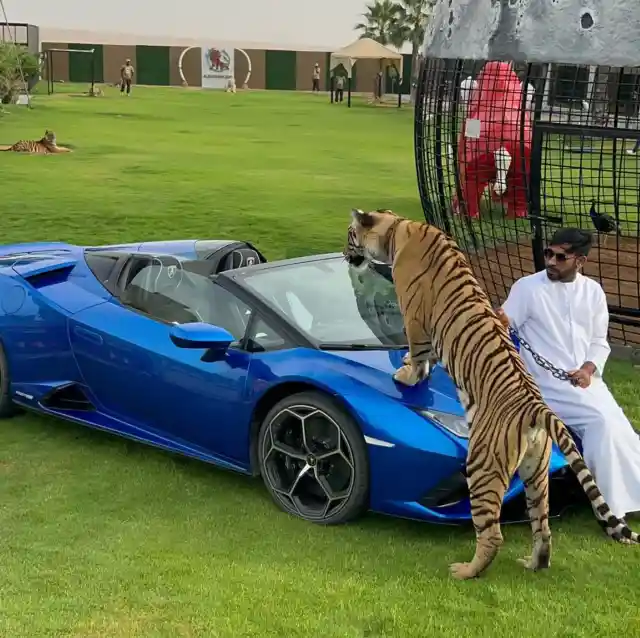
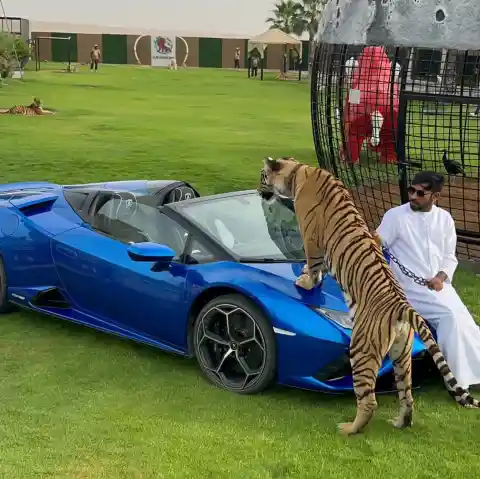
The rarer and more expensive the animal, the higher the owner’s social standing. However, in 2017, the government introduced strict regulations to curb this trend. Owning or trafficking endangered species now carries a hefty fine of up to $136,000 or a six-month prison sentence.
Construction Cranes
Dubai’s construction industry is booming once again, requiring massive investments in infrastructure, labor, and resources. Remarkably, the city is home to more construction cranes than anywhere else in the world—reportedly around 25% of the global total.
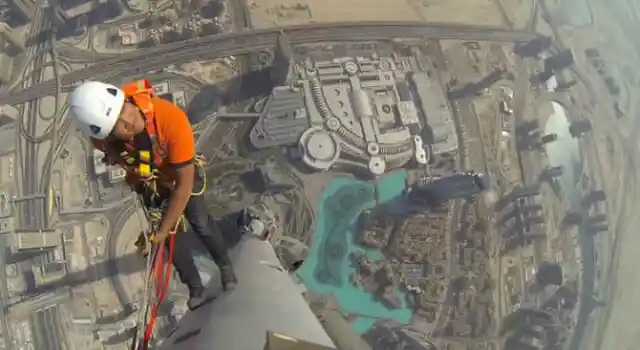
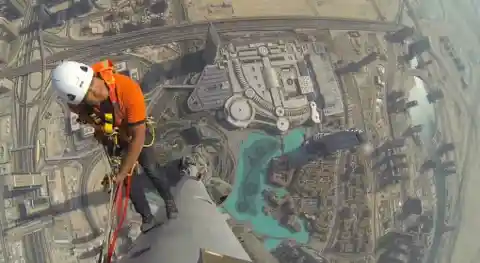
That’s quite an accomplishment! Surprisingly, Sydney, Australia, holds the second spot. While many in the U.S. might assume cities like Los Angeles or New York lead in crane usage, the actual leader is Seattle.
Ski Resort In The Desert
Dubai proves that with enough money, even the impossible becomes reality—like skiing in the middle of the desert. Located inside the Mall of the Emirates, Ski Dubai is an indoor, snow-filled ski resort complete with slopes, snow, and all the winter essentials.
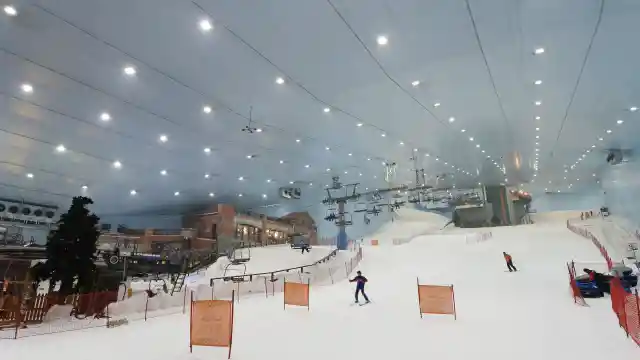
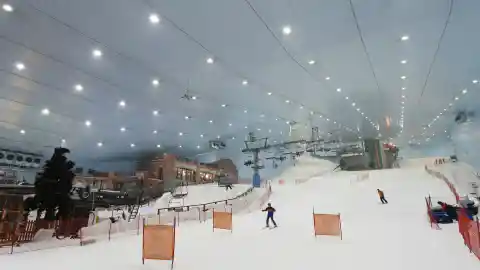
Attractions include a penguin show, a snow park, and several slides ranging in difficulty. It’s a perfect way to escape the intense desert heat for a few hours—or even an entire day. A full-day pass costs around $83, while a two-hour ski pass is priced at $55. Packages are also available that include equipment, lessons, and meals.
Gold Vending Machines
Vending machines today offer just about everything—but Dubai takes it to another level. While Japan is known for its unique and innovative vending options, Dubai has something Japan doesn’t: machines that dispense pure gold.
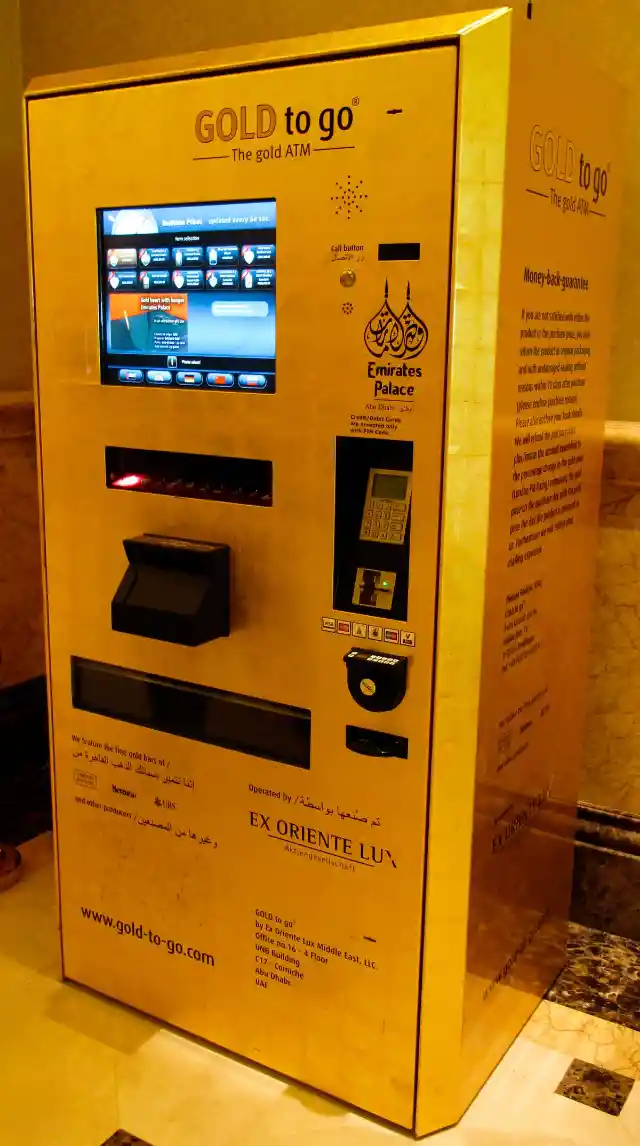
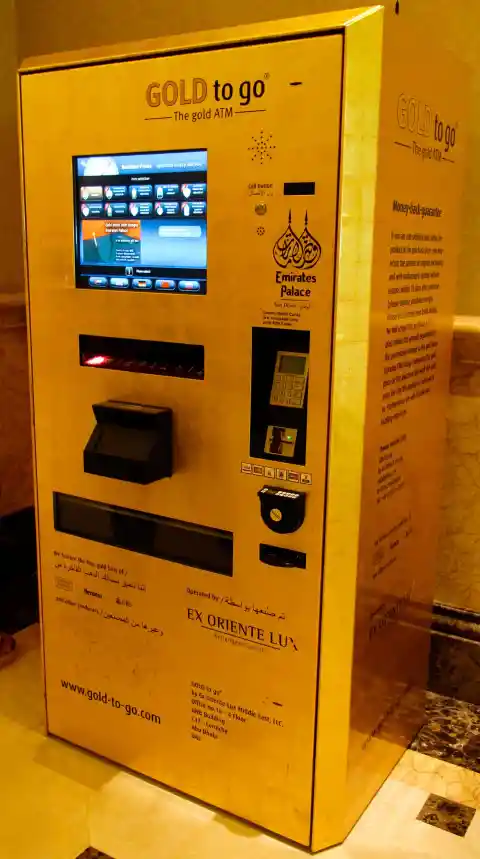
That’s right—you can purchase 24k gold directly from a machine using cash or a credit card. Whether you’re looking for a small 2.5-gram piece or a full gold bar, it’s all available. To ensure accurate pricing, the machine updates gold rates every 10 minutes in line with market values.
Camels Everywhere
The Middle East wouldn’t be the same without camels—they’re deeply woven into the region’s culture and heritage. In Dubai, you can still experience traditional camel rides or sample dishes made with camel meat and milk.
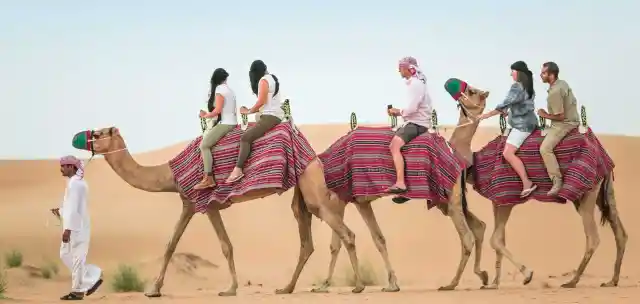
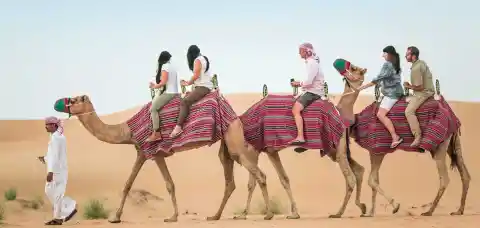
While camel meat isn’t commonly found in most restaurants, it’s definitely available. You can even pick up camel milk chocolate as a unique gift for friends back home! For adventurous travelers, a camel trek through the desert offers a chance to witness Bedouin life firsthand. Most camel safari tours also include cultural experiences like henna painting, sheesha smoking, and traditional bread baking.
Ambitious Projects
Dubai’s man-made islands are among its most fascinating and ambitious developments. Palm Jumeirah and Palm Jebel Ali are both designed in the shape of palm trees, creating iconic silhouettes visible from space. Even more impressive is the ongoing World Islands Project—a collection of 300 artificial islands arranged to resemble a world map.
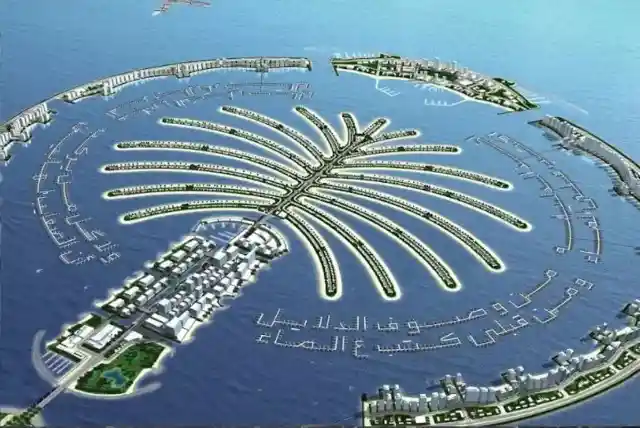
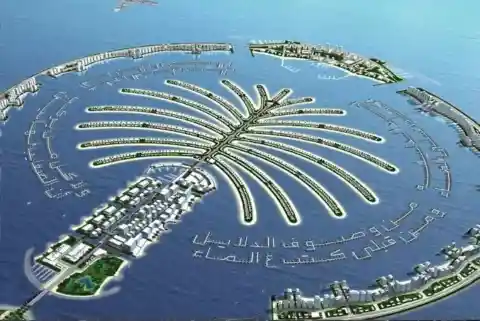
Each island is intended to represent a different country, city, or landmark. Originally estimated at $13 billion in 2005, the project faced major setbacks during the 2008 financial crisis, causing construction to stall. While only a few islands have been developed so far, many wonder if the project will eventually reach completion.
Traffic Congestion
This is what a traffic jam looks like in Dubai—rows of luxury cars lined up and honking, almost like a high-end auto show on the road! While not everyone drives a Ferrari, the sheer number of expensive vehicles is still impressive.
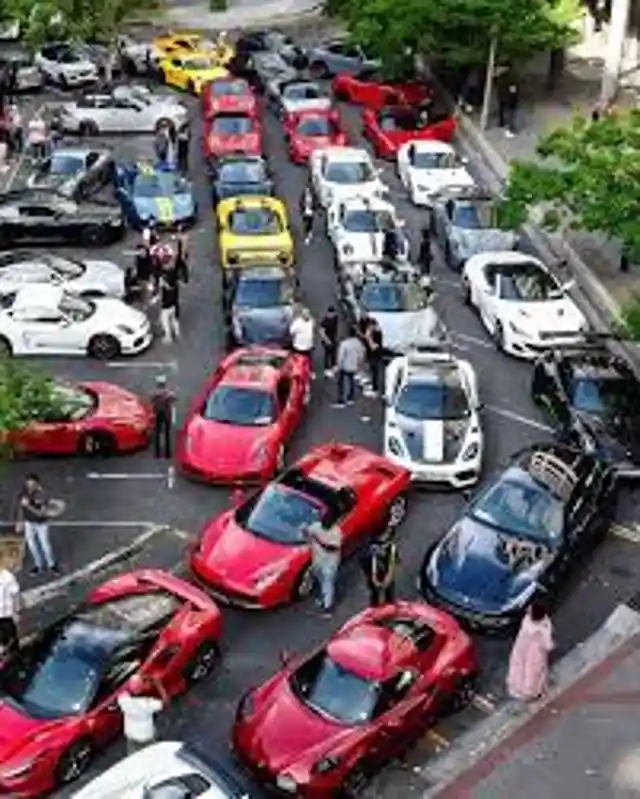
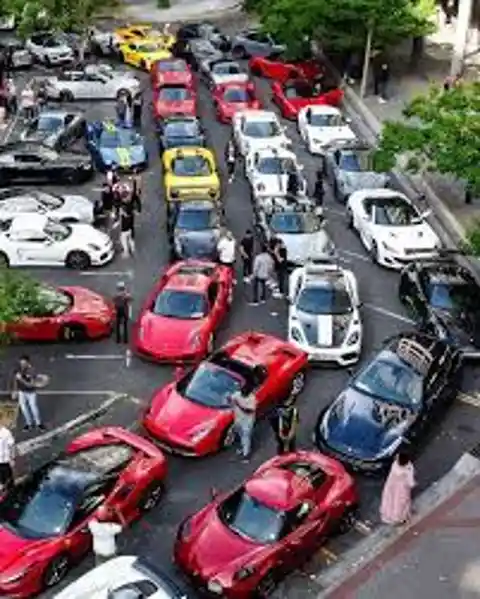
Due to Dubai’s rapid expansion, traffic congestion has become a serious issue. To address this, the government has been investing significantly in transportation infrastructure. One major development was the launch of the Dubai Metro in 2009, after just 18 months of construction. Despite these efforts, traffic still causes an estimated $790 million in losses each year.
Gold-Plated Cars
If your luxury yacht, Ferrari, mansion, or exotic pet somehow isn't enough to satisfy your sense of status, there’s always the option to go one step further—gold plating. In Dubai, covering high-end cars in gold is a bold way to flaunt wealth.


While it may sound over-the-top, many don’t see it as excessive, but rather as a statement of opulence. These gleaming vehicles are so reflective, they could cause drivers to veer off the road if the sunlight hits them just right—hopefully, everyone around is wearing sunglasses! Your golden ride will certainly leave a lasting impression.
Dubai And Its People
Dubai is an incredibly diverse city, with a significant portion of its population made up of foreign residents. In fact, only about 17% of households are made up of Emirati men. The city’s rapid growth and towering skyline were made possible largely by hiring foreign labor. Immigrants—primarily from Bangladesh, India, and Pakistan—make up roughly 83% of the population.
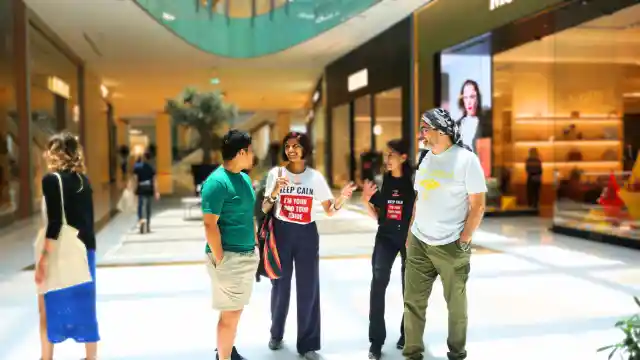

However, this diversity also highlights major economic disparities. While Emirati citizens receive free education, housing, and healthcare, many immigrant workers endure poor living and working conditions. If you're planning to live in Dubai, securing a well-paying job is essential to enjoy the city’s benefits.
Charity And Kindness
Charity holds a special place in Dubai’s culture, especially during Ramadan, the holy month of fasting for Muslims. It’s common to see generous acts in shopping centers, where free food is distributed to those living in poverty or on low incomes.
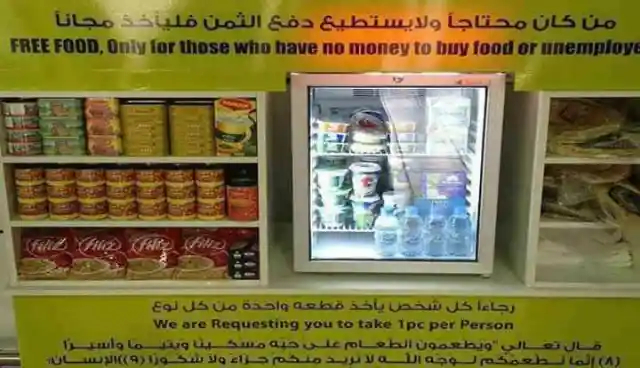
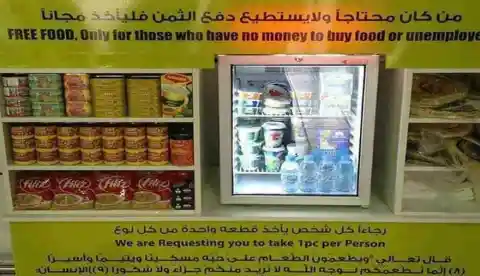
This level of community support is rare to witness anywhere else in the world. As one mall manager described, “We offer everything from Laban and fresh yogurt to juices and water, Arabic pastries, ready-to-eat tuna, and pre-cooked macaroni—all available for anyone to take at no cost.” Keep reading to learn more about the remarkable traditions in this extraordinary region.
The Most Ambitious Mall In The World
Dubai is planning an extraordinary new project called Mall of the World, which aims to become the largest mall complex on the planet! Spanning 8 million square feet, this massive indoor, air-conditioned city will be unlike any other shopping destination.
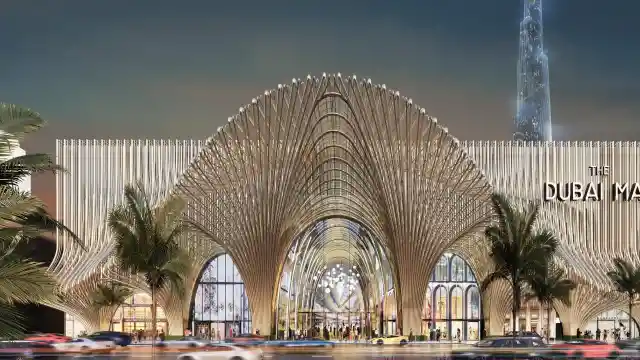
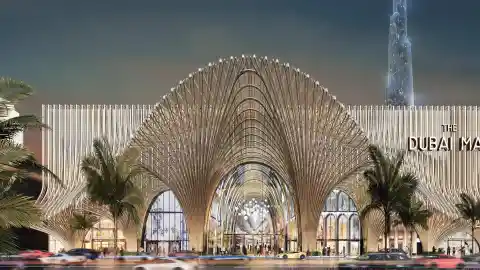
Designed to accommodate an anticipated 80 million visitors annually, the mall will include over 100 hotel rooms. The complex will also feature a huge park, even bigger than London’s famous Hyde Park. Announced in July 2014, the project is expected to take at least ten years to complete. Ready to add another reason to visit Dubai? We certainly are!
Arab Minority
What do you think about this? Contrary to popular belief, Arabs do not make up the entire population of the United Arab Emirates (UAE). Although the country maintains a Muslim majority, Arabs represent only about 13% of the population.
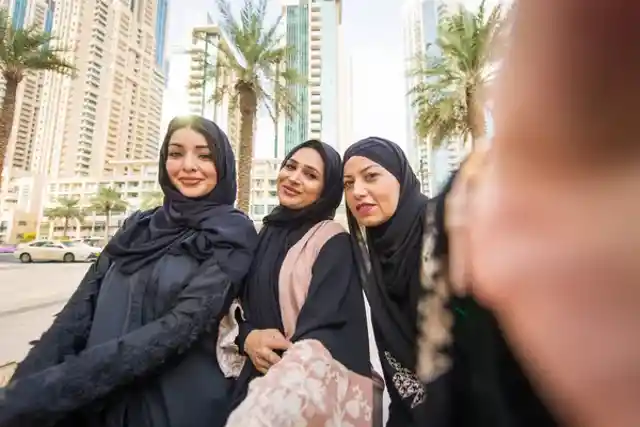
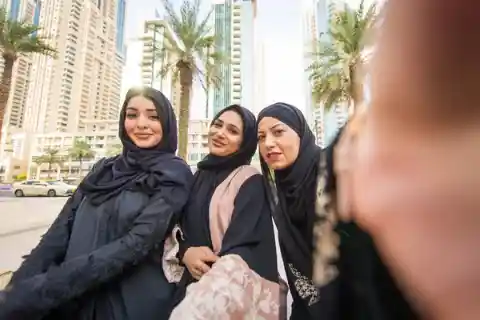
This lower percentage is largely due to the high number of foreign residents, primarily from Pakistan and Bangladesh.
Tourism
The United Arab Emirates stands out for attracting a large influx of tourists each year. In fact, statistics show that by 2009, tourism had surged enough to rank the country as the world’s seventh most popular travel destination.
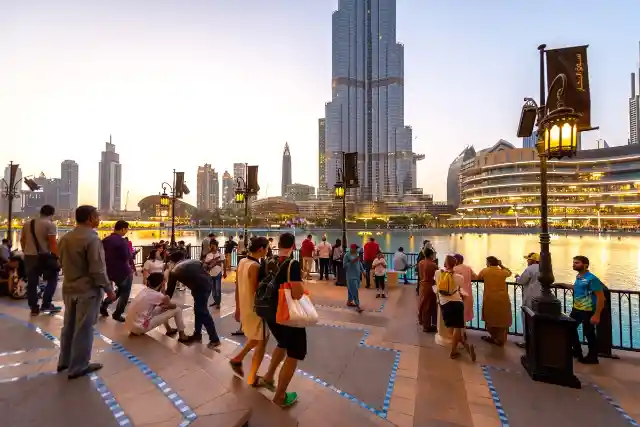
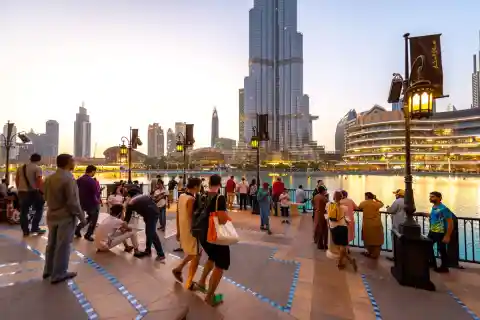
Visitors are advised to familiarize themselves with the UAE’s entry and movement regulations, which will be detailed in the following fact.
Drinking In Public
While alcohol consumption is prohibited in Islam, this rule does not apply to visitors of other religions. However, it’s essential to follow the UAE’s strict laws regarding drinking.
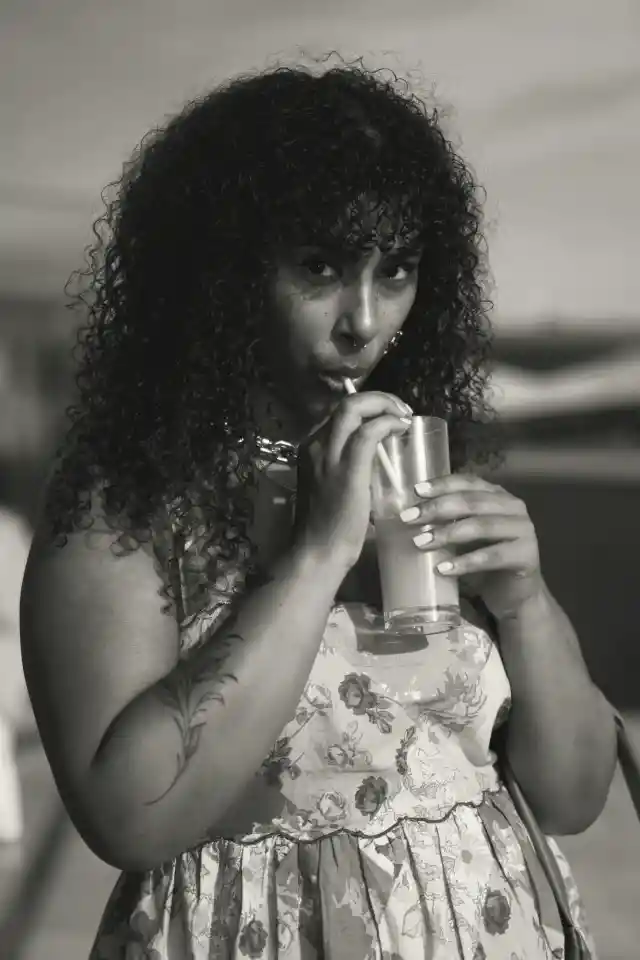
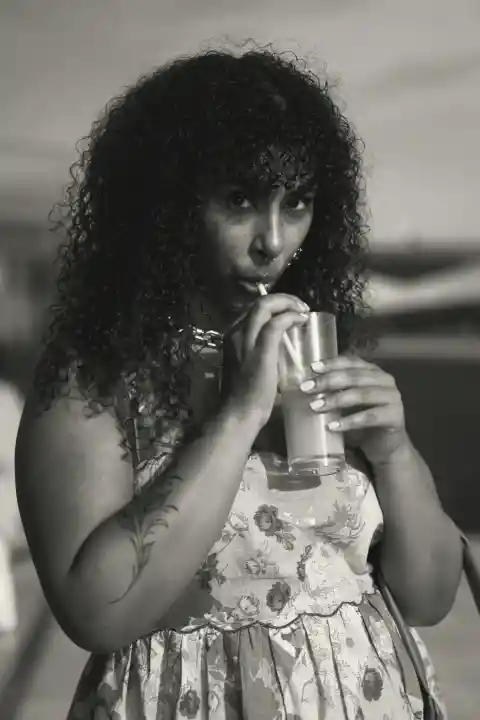
For example, a Russian tourist was imprisoned for drinking alcohol in public during the holy month of Ramadan.
Longer Ramadan
Living on the upper floors of Dubai’s Burj Khalifa Tower certainly has its perks, but it also comes with unique challenges—especially during Ramadan.
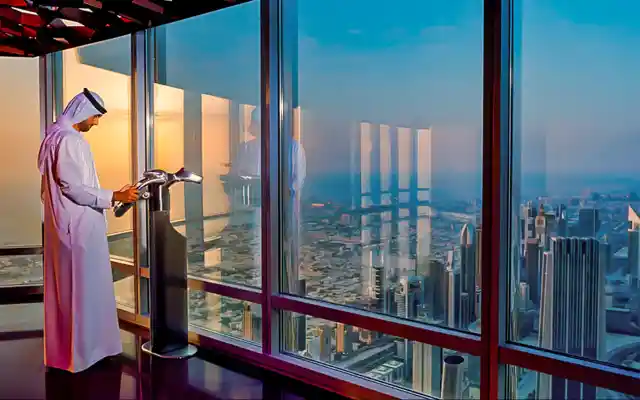
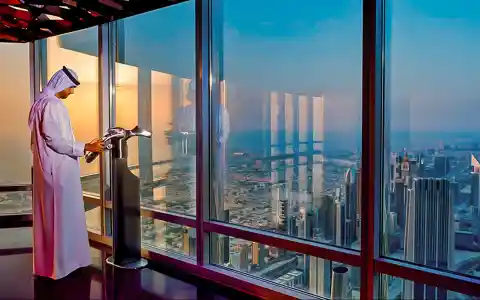
While most people break their fast at sunset, those residing on the higher levels must wait a few extra minutes since they can still see the sun from their vantage point.
Royal Families
The United Arab Emirates operates under a monarchical system, with governance divided among royal families.
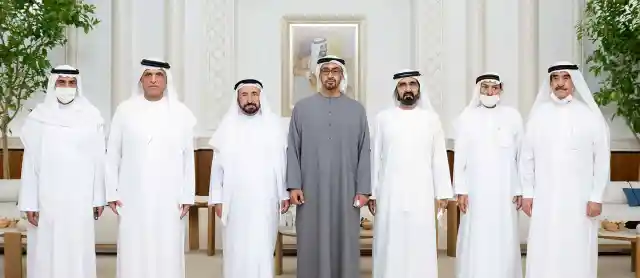
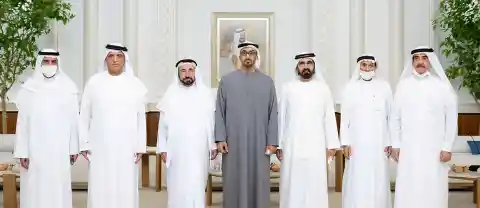
Each of the seven emirates is ruled by its own royal house, although the Al Qasimi family governs two of them.
Ferrari Theme Park
In a country where Ferraris serve as police vehicles, it’s no surprise that something even more extravagant exists—a Ferrari-themed amusement park.
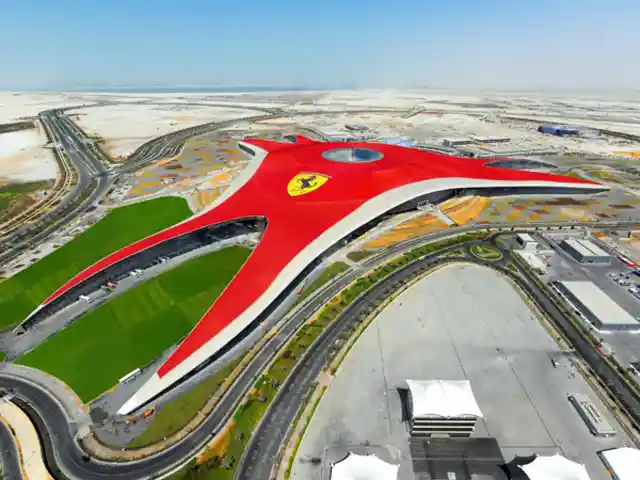
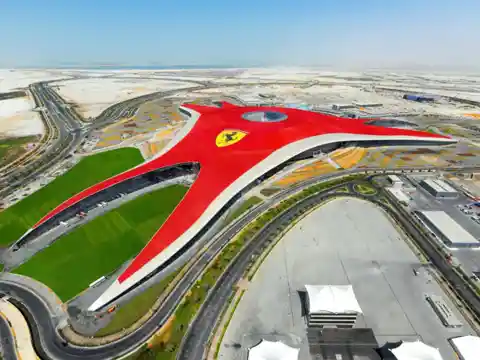
Located in the United Arab Emirates, this award-winning attraction has been drawing thousands of visitors annually and has been in operation for over ten years.
Tallest Building
Dubai’s Burj Khalifa holds the title of the tallest building in the world, soaring 830 meters into the sky with 163 floors.
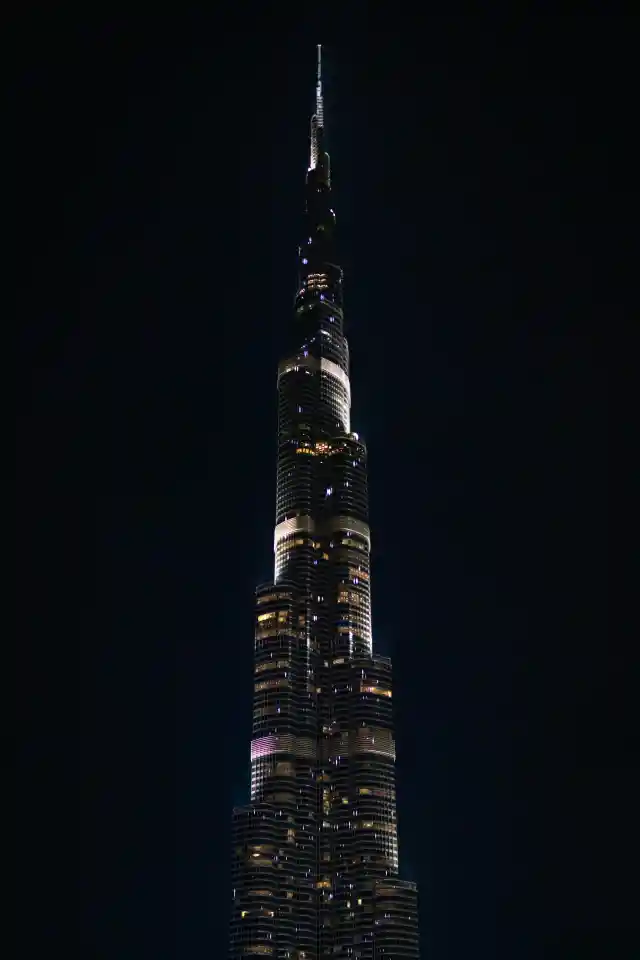
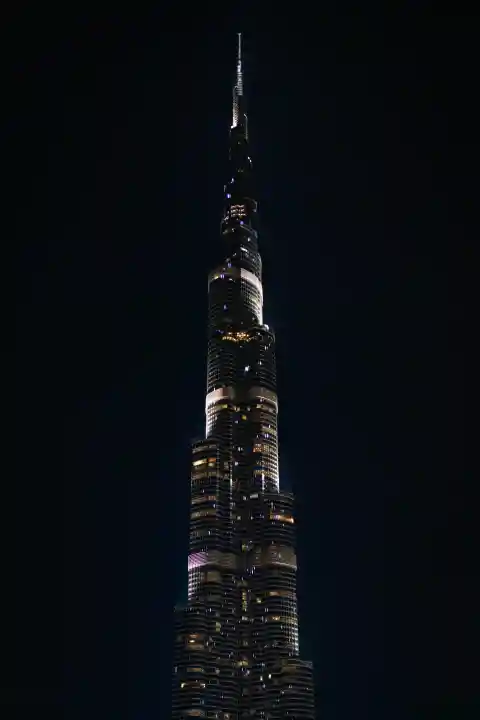
To put its height in perspective, it surpasses the Empire State Building by around 800 feet. Architecturally, the Burj Khalifa is unique, drawing inspiration from the design of the Great Mosque of Samarra.
Snickers For Gas
Just when you think Dubai couldn’t surprise you anymore, it throws in another unexpected twist. Imagine a place where grabbing a Snickers could somehow be linked to fuel or even financial perks. While it’s rare to receive cash straight from an ATM for snacks, Dubai took it a step further by offering gold from vending machines.
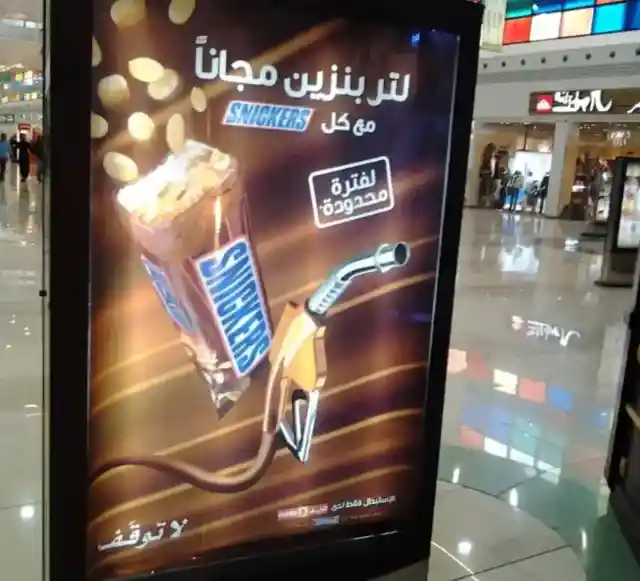
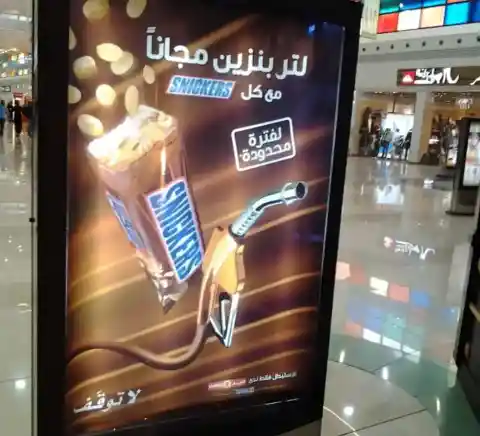
These quirky features reflect a broader trend—Dubai’s ever-growing job market and economic opportunities that continue to attract global attention.
Drinking License
While Dubai shows more tolerance toward alcohol compared to many other Muslim-majority nations, it still enforces strict regulations. One key requirement for non-Muslim residents is obtaining a drinking license. This license legally allows individuals to purchase, possess, and consume alcohol in designated areas such as private homes or licensed venues.
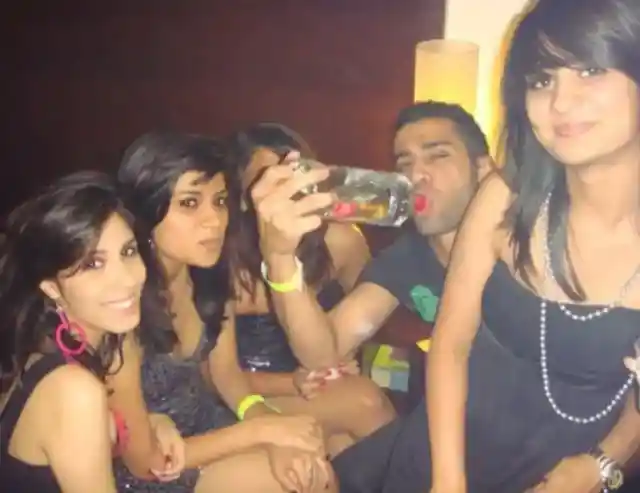
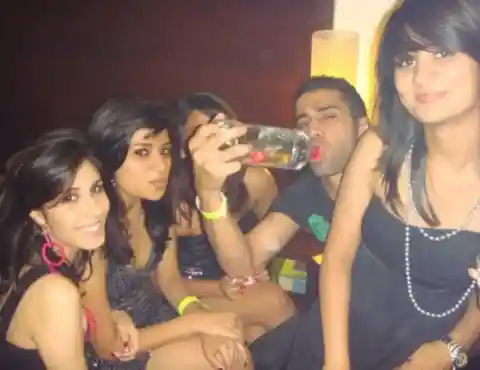
Interestingly, acquiring this license typically requires the applicant to be a resident, meaning tourists can only drink in licensed establishments like hotels and bars. Without this permit, even a private drink could lead to serious legal consequences.
Tax-Free
Imagine a life without income tax—well, that’s the reality for residents of the United Arab Emirates. One of the biggest financial perks of living in Dubai is its tax-free income policy. This means individuals can earn a salary without deductions for income tax, allowing them to save or spend significantly more than they could in many other countries.


This system is part of what makes the UAE such an attractive destination for expatriates. The government is able to maintain this model due to its wealth from oil revenues and other prosperous industries, allowing for economic growth without burdening citizens with direct income taxation.
FIFA In The UAE
In 2009, the United Arab Emirates proudly hosted the FIFA Club World Cup, marking a significant moment as it was the first time a Middle Eastern country held the prestigious tournament. The event returned the following year due to its success and warm reception.
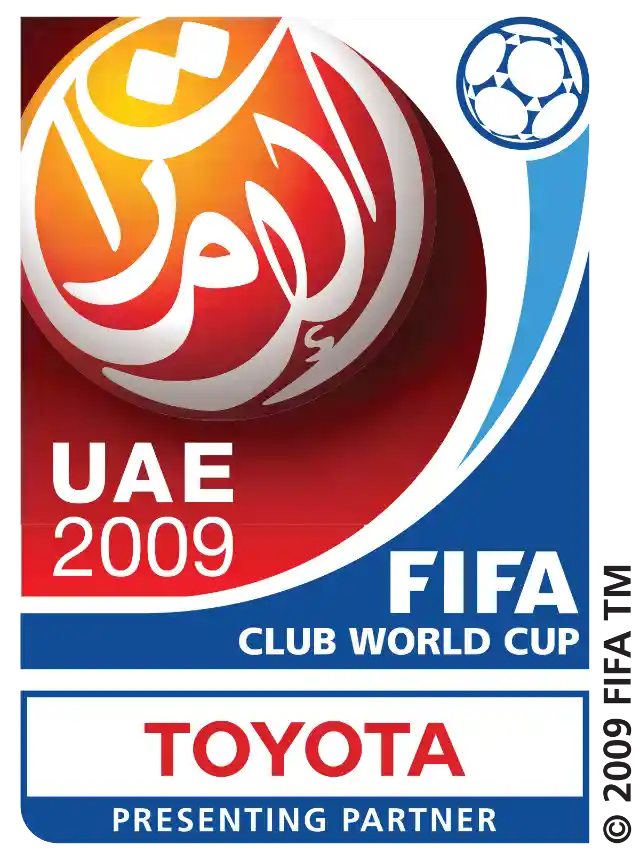
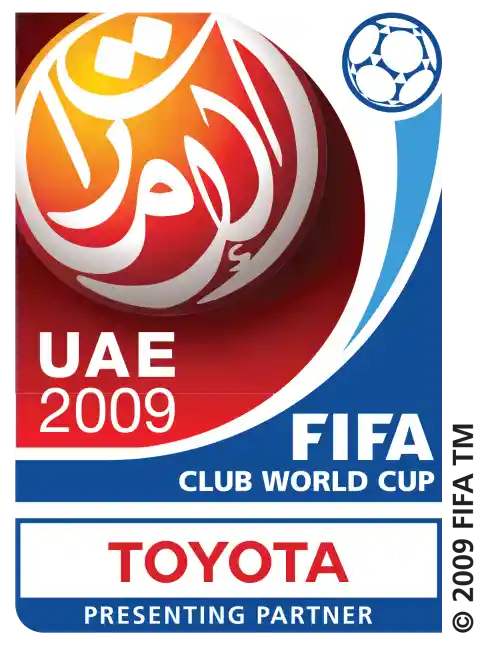
Although it wasn’t the FIFA World Cup itself, the UAE's successful execution of such global sporting events demonstrated its growing presence on the international stage. With world-class stadiums and infrastructure already in place, many believe it’s only a matter of time before the UAE is selected to host the FIFA World Cup in the future.
From Camels To Cars
Sheikh Rashid bin Saeed Al Maktoum, the visionary founder of modern Dubai, once made a thought-provoking statement about the city's rapid transformation. He remarked, “My grandfather rode a camel, my father rode a camel, I drive a Mercedes, my son drives a Land Rover, and my grandson will ride a camel.”
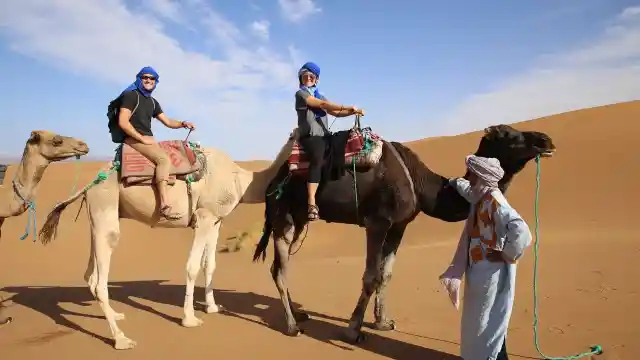
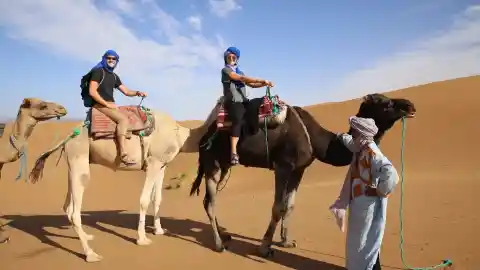
This quote reflects not just Dubai’s astonishing rise from desert life to dazzling modernity, but also a cautionary note on the cyclical nature of prosperity and the importance of sustainability. It’s a reminder that no matter how advanced a society becomes, it must remain grounded to preserve its future.
No Grass Policy
If you're considering traveling to the UAE, be aware that the country enforces a strict zero-tolerance policy on drugs—no exceptions. One British tourist learned this the hard way when he was arrested and jailed after authorities found a minuscule amount of marijuana lodged in the tread of his shoe—literally the size of a grain of sugar.
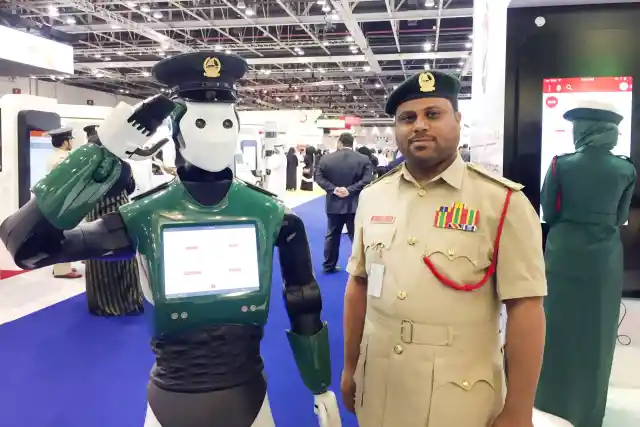
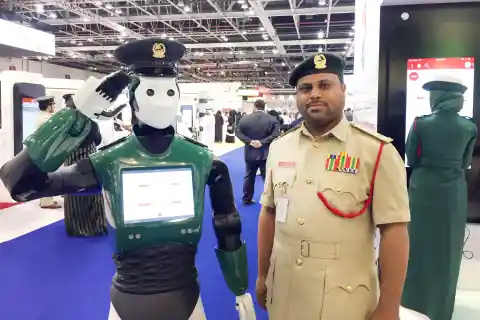
Even trace amounts can lead to serious legal consequences, including imprisonment. The UAE takes drug offenses extremely seriously, so it’s crucial to ensure you’re in full compliance with their laws before entering the country.
No Zip Codes
Planning to send something to Dubai? You might want to rethink your approach. The challenge lies in the fact that Dubai doesn’t use postal or zip codes like many other cities do.
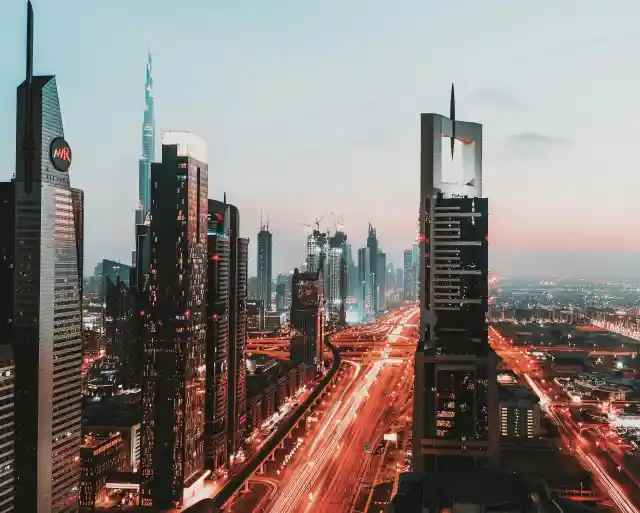
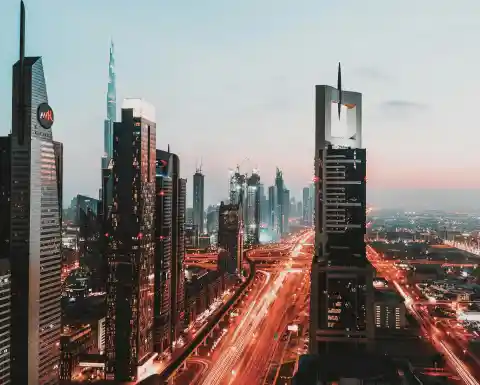
Instead, you’ll need to rely on someone familiar with the area to ensure your package or mail reaches the right destination. Navigating deliveries here requires local knowledge, as traditional addressing systems aren’t in place.
Holy Cr*p
The absence of a traditional postal system is one thing, but here’s something even more unusual. Dubai’s local government operates a fleet of trucks specifically to transport human waste from the city to a landfill located outside its limits.
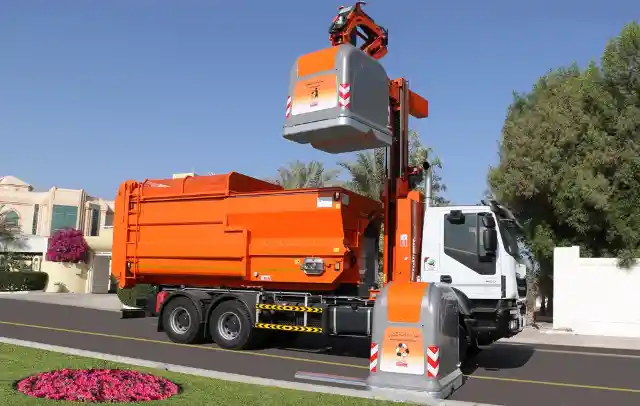
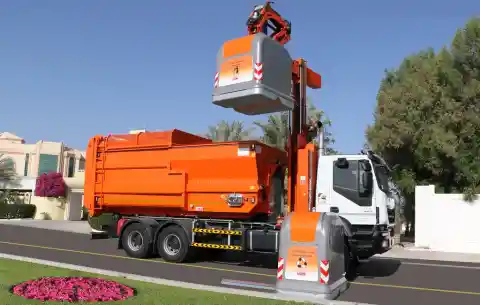
It’s definitely a quirky and somewhat unsettling detail about how the city manages its sanitation.
Easy Come, Easy Go
Like much of the world, Dubai felt the impact of the 2008 financial crisis. Over time, it became clear that sustaining their extravagant lifestyles and luxury cars required considerable effort.
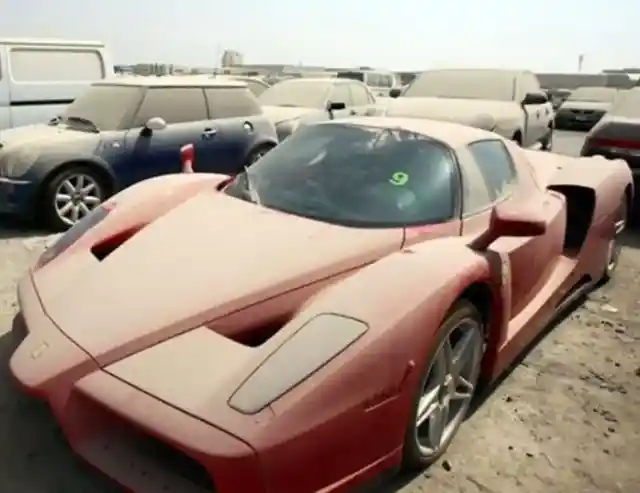
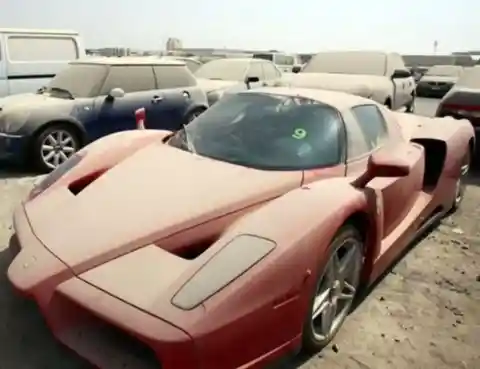
Allowing individuals the freedom to pursue their ambitions played a big role in shaping this reality.
Kyoto Protocol
Even though the UAE is a significant oil exporter, many were taken aback by its surprising backing of the Kyoto Protocol’s renewal.
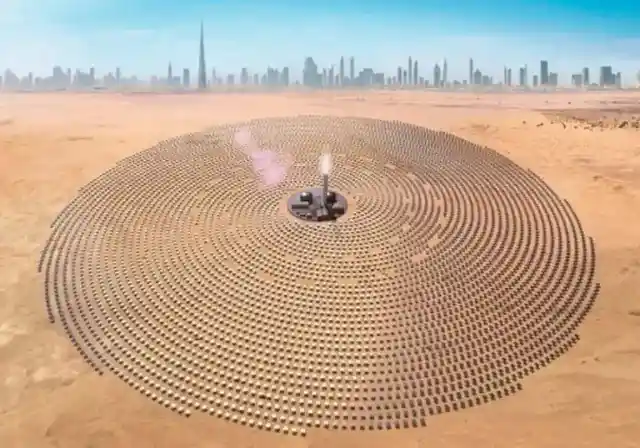
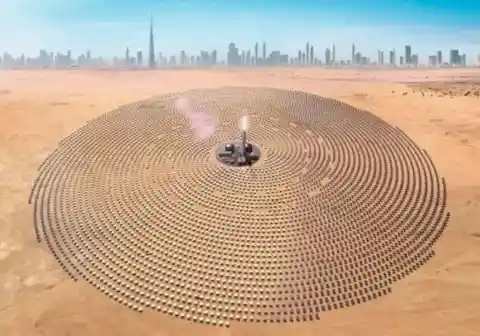
Prior to this extension, the UAE had already been actively working to increase its use of solar energy.
Pirates And Sheikhs
The shores of the Persian Gulf have long been notorious for harboring numerous pirates, earning the nickname "Pirate Coast." Legend has it that the current rulers of the United Arab Emirates and Qatar are descendants of those very pirates who targeted British ships over a century ago.
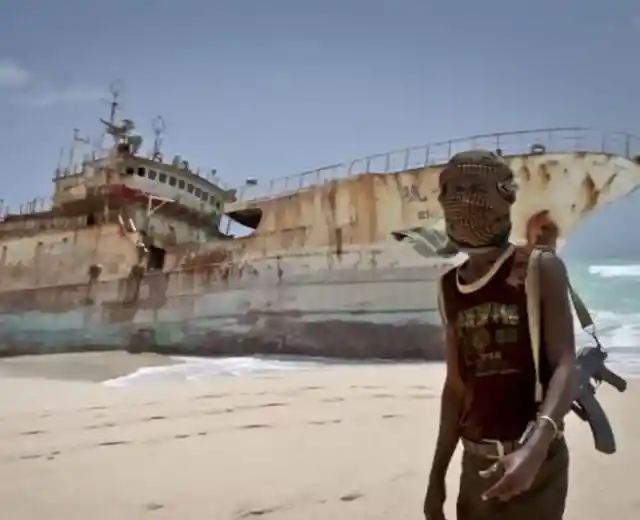
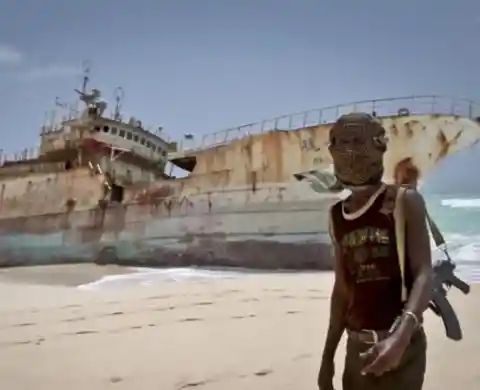
But what became of those pirates, and where are their legacies now?
Free Laptops
In the same year that a tornado hit Joplin, Missouri—home to my cousin’s university—the UAE took remarkable steps to support education and career readiness for high school students.
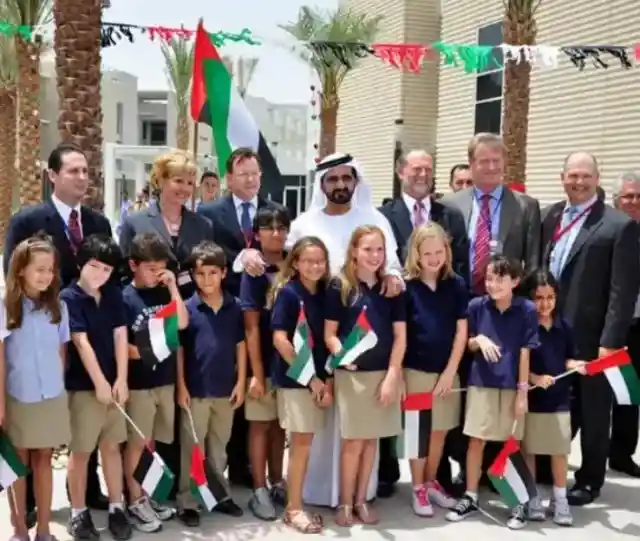
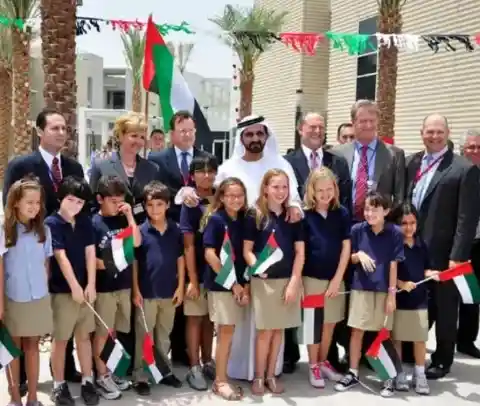
Through a scholarship initiative launched by the schools, every high school student is provided with a laptop. That’s truly impressive!
Property In New York
Many iconic New York landmarks, like the Statue of Liberty and the Empire State Building, are clearly symbols of America.
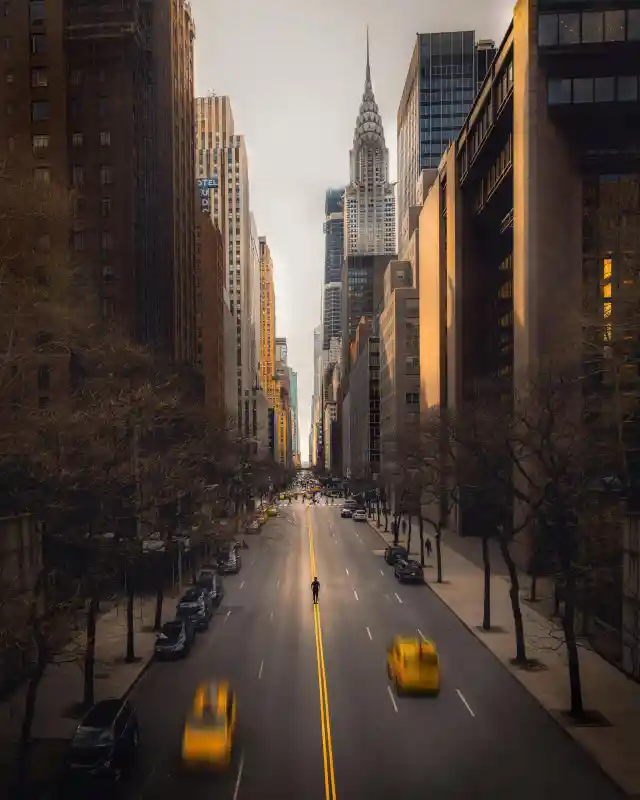
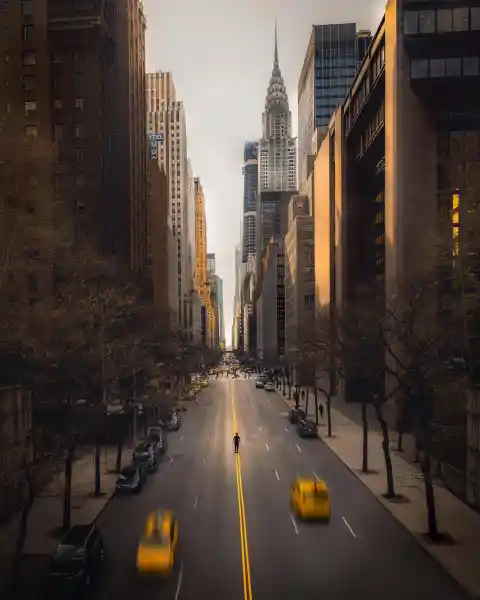
However, while some might assume the Chrysler Building fits this category too, it’s interesting to know that the Emirate of Abu Dhabi actually owns nearly the entire structure in Manhattan.
Par For The Course
It’s hard to imagine just how much 4,000 gallons of water really is. Surprisingly, despite being in the desert, Dubai has access to a vast amount of water—enough to supply all its golf courses every day, which would require an impressive, world-class reservoir.
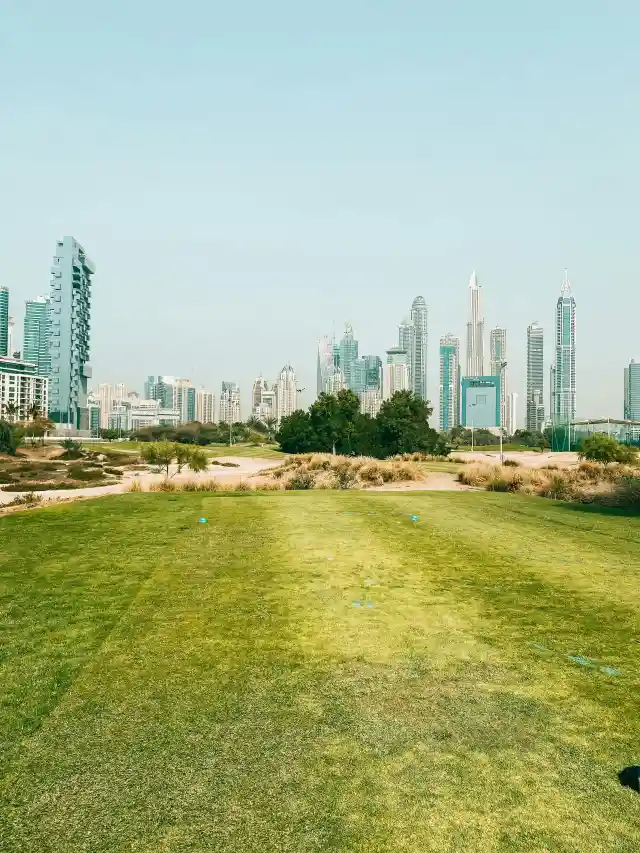
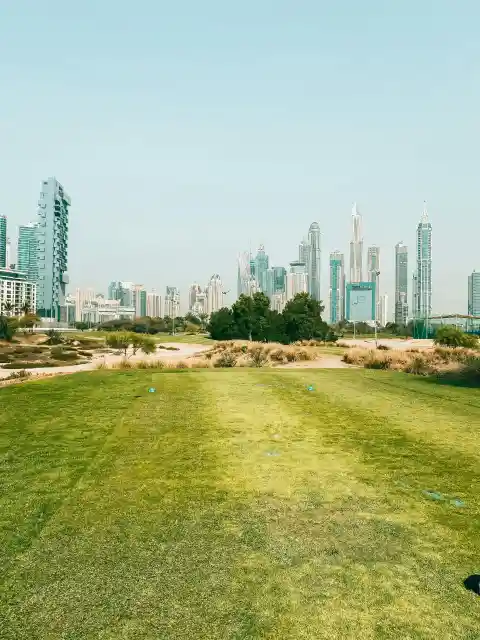
It’s remarkable that such a huge volume is used to maintain green spaces right in the middle of the desert.
Zero City
If you think the United Arab Emirates’ innovation stops at solar power, think again.
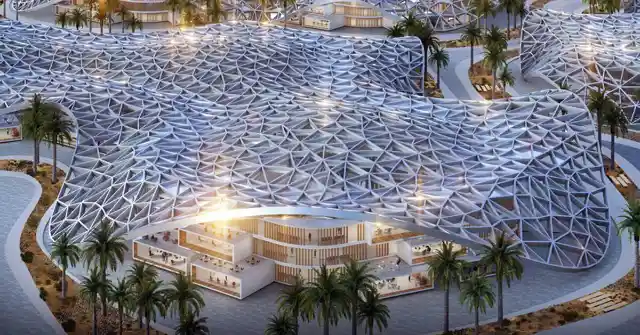
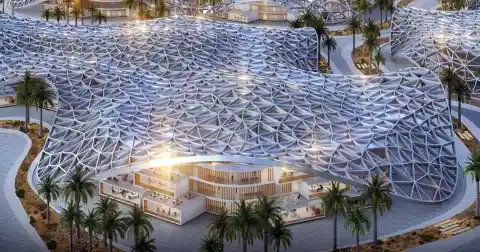
There are plans to build a “zero city”—a community designed to produce all its energy exclusively from renewable sources and generate no carbon emissions or harmful waste. This visionary project aims for a completely sustainable, eco-friendly urban environment.
Nomads
Archaeological research has shown that the Bedouins currently residing—or who once lived—in the Arabian Peninsula’s United Arab Emirates have a long history in the region.
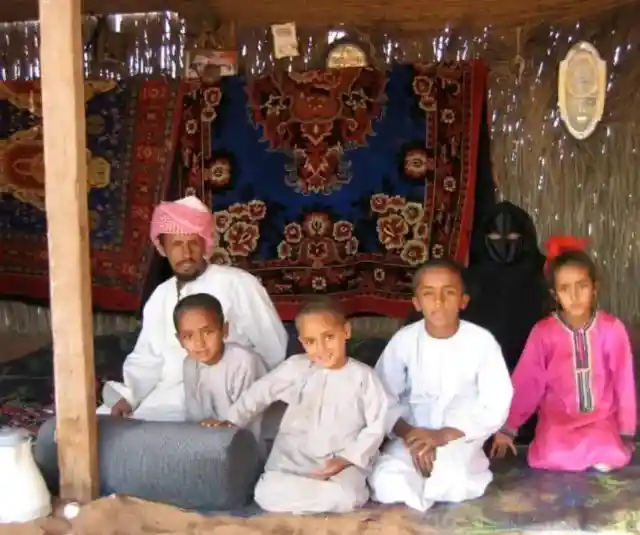
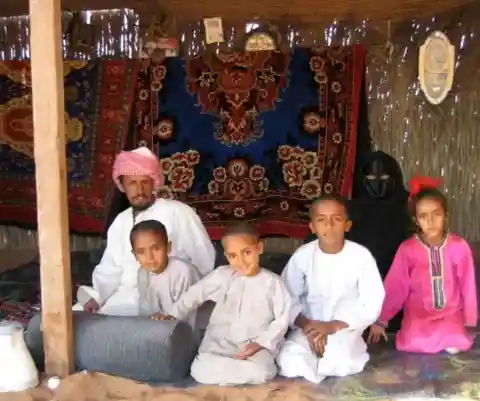
These nomadic people traditionally ride camels, rely on camel milk, and consume camel meat as a primary source of protein.
Pearl Diving
Before the discovery of oil, the United Arab Emirates thrived as a seaport and was renowned for its pearl diving industry in the Persian Gulf. For centuries, pearl diving was a major economic activity in the region, with divers collecting natural pearls that were highly valued around the world.
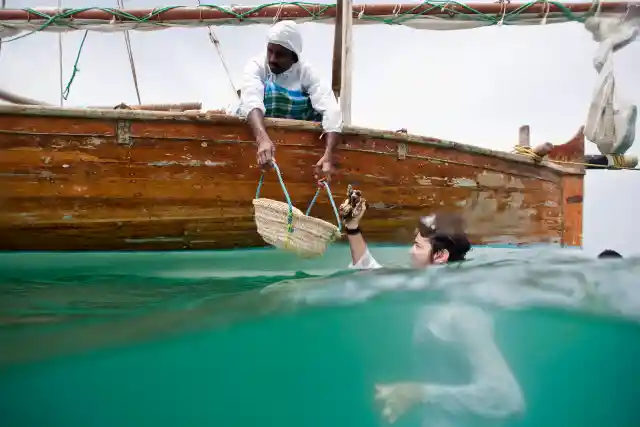
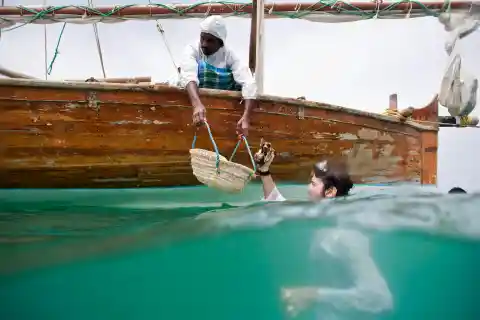
However, the industry declined in the mid-20th century due to the rise of cultured pearls, particularly from countries like Japan. While pearls are now found in places like South Carolina and Indiana, Dubai’s historical legacy as a pearl trading hub remains a significant part of its cultural heritage.
Alserkal Avenue
Located in Dubai’s Al Quoz district, Alserkal Avenue has evolved from a former industrial zone into a thriving center for arts and culture. It hosts an eclectic mix of art galleries, design studios, and performance spaces, making it a cornerstone of Dubai’s contemporary creative scene.
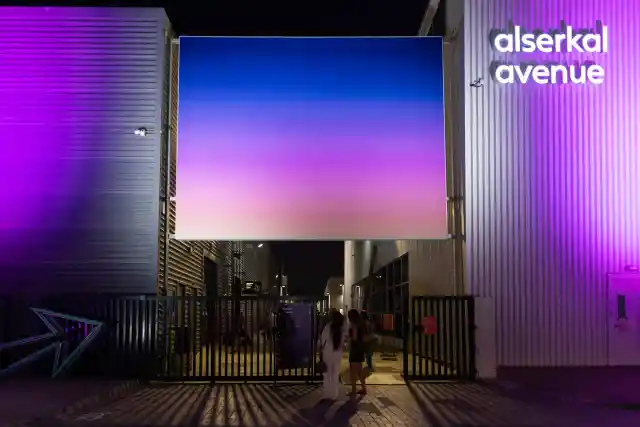
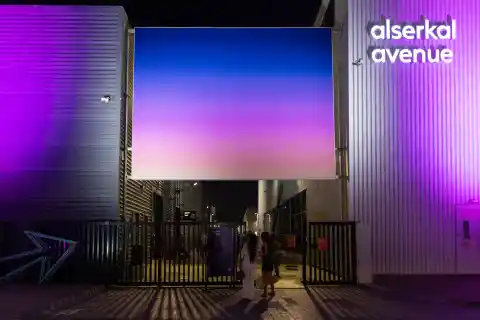
Visitors can experience rotating exhibitions, participate in interactive workshops, or simply soak in the neighborhood’s artistic atmosphere. Alserkal Avenue plays a vital role in nurturing both emerging talents and established artists, offering a collaborative environment that celebrates innovation and cultural expression.
Al Fahidi Historical Neighborhood
Nestled in the heart of old Dubai, Al Fahidi Historical Neighborhood offers a captivating glimpse into the city’s past. This charming area is known for its traditional wind-tower architecture, narrow alleys, and sand-colored buildings that once housed merchants and traders.
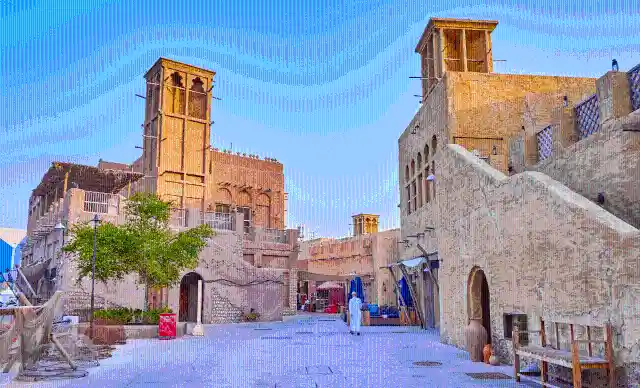
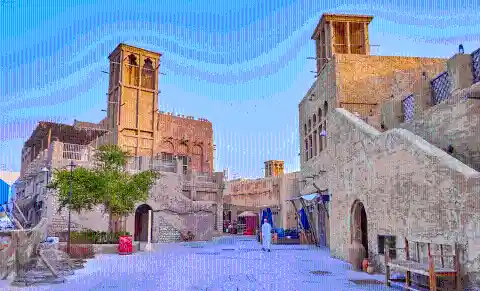
Today, it stands as a cultural treasure, home to museums, art galleries, and heritage centers that highlight Dubai’s history and traditions. A walk through Al Fahidi's quiet lanes provides a peaceful escape from the city's modern pace and serves as a reminder of Dubai’s humble beginnings, making it a must-see for anyone interested in its cultural roots.
Dubai Creek
Dubai Creek, a natural saltwater inlet, has long served as the heartbeat of the city, shaping its growth and trade legacy. This historic waterway separates Deira and Bur Dubai, two of the city’s oldest districts, and offers a window into Dubai’s maritime and commercial roots.
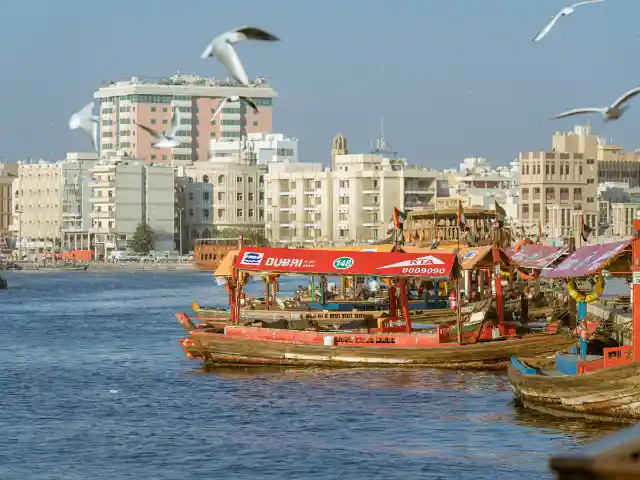
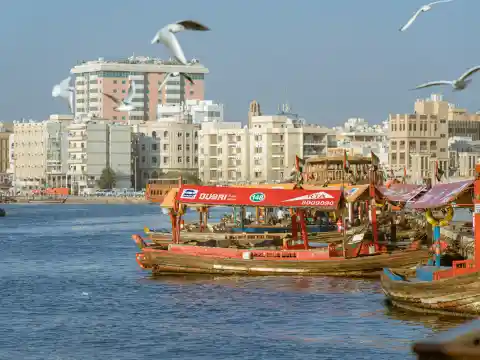
Traditional wooden dhow boats still glide along its waters, echoing the past, while the lively Gold and Spice Souks nearby add to its vibrant atmosphere. Taking a ride on an abra—a small wooden ferry—across the creek is a must-do experience, providing a scenic and authentic look at the heritage that laid the foundation for modern Dubai.
Hatta Dam
Nestled in the rugged Hajar Mountains, Hatta Dam offers a tranquil escape from Dubai’s urban hustle. Surrounded by rocky terrain and calm turquoise waters, it’s a popular spot for kayaking, paddleboarding, and scenic photography. Visitors are drawn to its peaceful atmosphere and panoramic views, especially during sunrise or sunset.
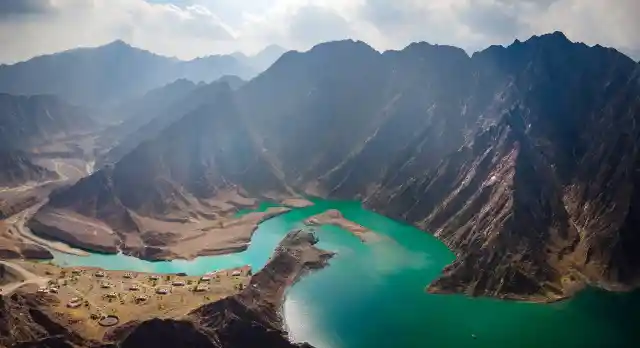
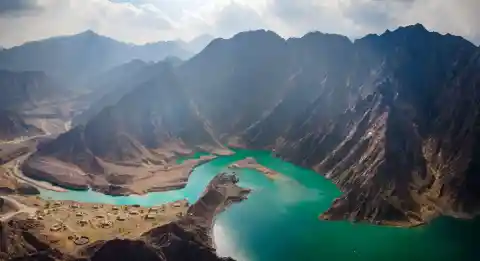
The dam is part of the Hatta region’s eco-tourism efforts, encouraging outdoor recreation while preserving natural beauty. Whether you’re seeking adventure or relaxation, Hatta Dam provides a refreshing contrast to the city’s skyscrapers and desert landscapes.
The Green Planet
Situated in City Walk, The Green Planet is Dubai’s immersive indoor rainforest, offering a striking contrast to the surrounding desert landscape. This bio-dome recreates a lush tropical ecosystem, home to over 3,000 species of flora and fauna.
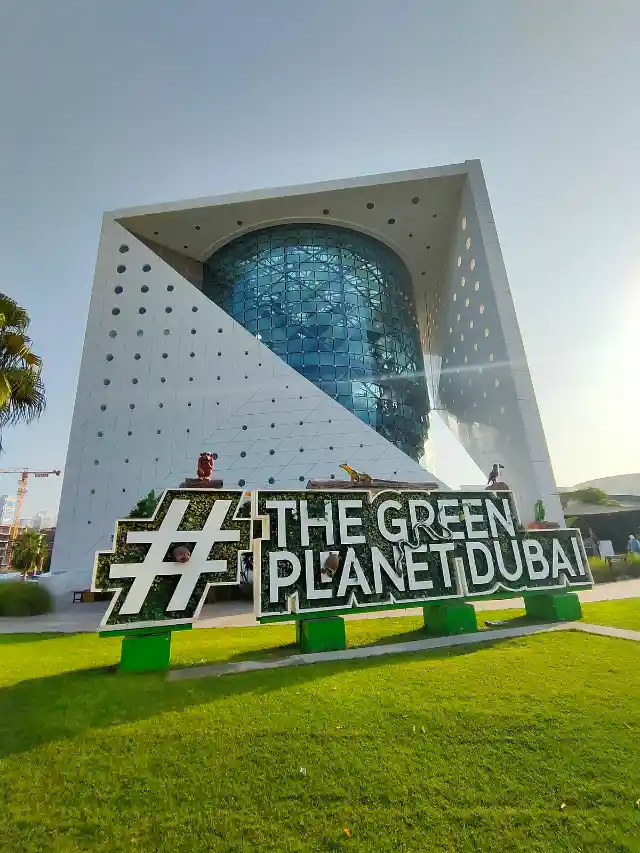
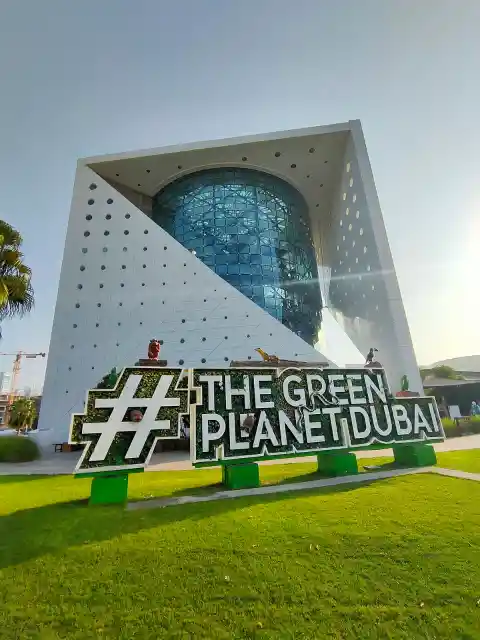
At its heart stands a massive, man-made tree that anchors the entire habitat, allowing visitors to explore rainforest layers from the forest floor to the canopy. The Green Planet blends education with entertainment, making it a captivating destination for families, nature lovers, and curious minds of all ages.
Ras Al Khor Wildlife Sanctuary
Located at the mouth of Dubai Creek, Ras Al Khor Wildlife Sanctuary is a thriving wetland reserve that offers a surprising slice of nature amid the urban sprawl. Best known for its vibrant flocks of flamingos, the sanctuary also shelters over 450 species of birds, fish, and other wildlife.
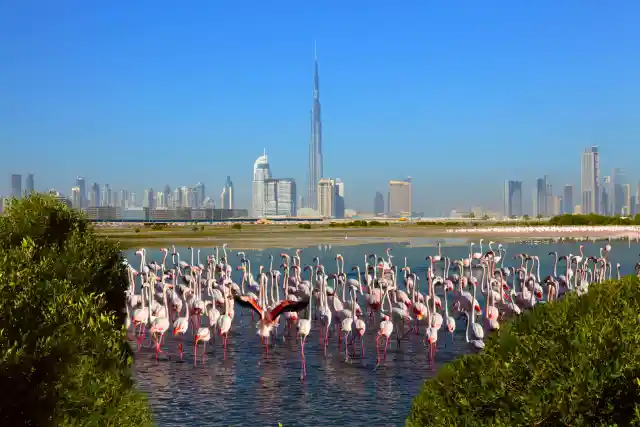
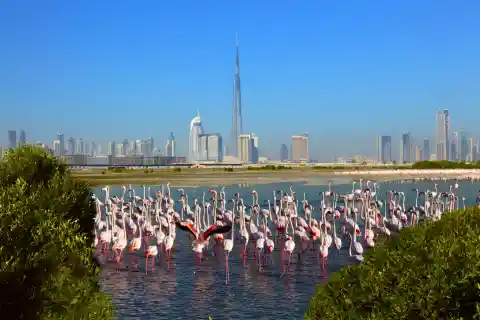
Visitors can observe the animals up close from specially designed hides and viewing platforms. A favorite among birdwatchers and conservationists, Ras Al Khor provides a tranquil escape and a unique opportunity to experience Dubai’s ecological side.
The Dubai Frame
The Dubai Frame is a striking architectural landmark that perfectly captures the essence of the city's transformation. Towering at 150 meters in Zabeel Park, the massive rectangular structure offers breathtaking views of both historic and modern Dubai. From the Sky Deck, visitors can walk across a glass bridge while taking in panoramic scenes of old Dubai to the north and the futuristic skyline to the south.
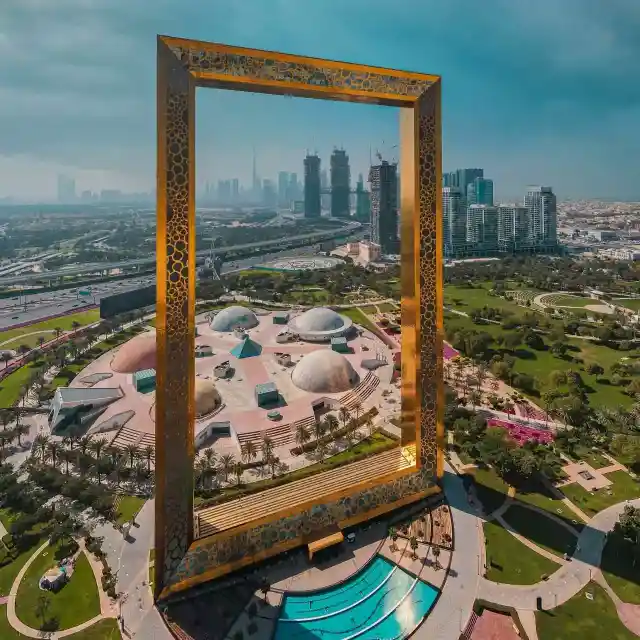
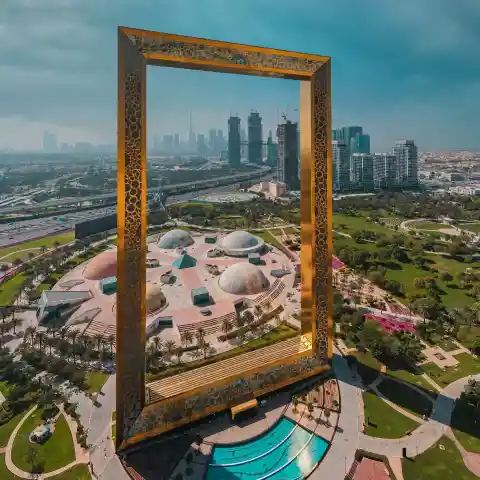
Inside, immersive exhibits trace Dubai’s evolution from a humble fishing village to a global metropolis, making the Dubai Frame both a visual and educational experience.
Al Marmoom Desert Conservation Reserve
Al Marmoom Desert Conservation Reserve is one of the UAE’s largest unfenced nature reserves, encompassing around 10% of Dubai’s land. Located on the outskirts of the city, it offers an unspoiled desert environment teeming with native wildlife such as Arabian oryx, sand gazelles, and over 200 species of birds.
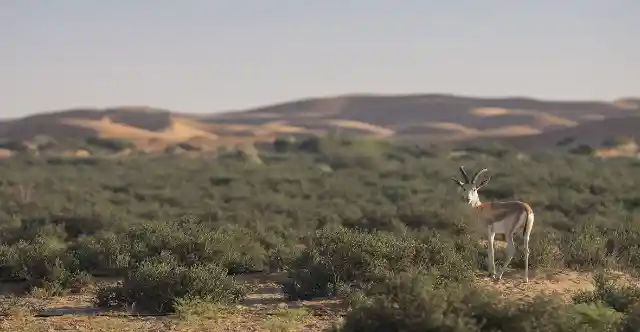
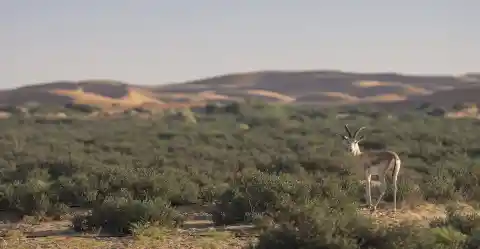
This vast expanse is a haven for eco-tourism, where visitors can enjoy wildlife observation, stargazing, cycling, and desert camping. Al Marmoom provides a serene escape from urban life, highlighting the natural heritage and biodiversity of the Arabian desert.
La Mer
La Mer is a lively beachfront destination in Dubai’s Jumeirah area, offering a perfect blend of relaxation and recreation. With its laid-back coastal vibe, La Mer features golden sandy beaches, trendy retail shops, and a variety of dining options that span international cuisines.
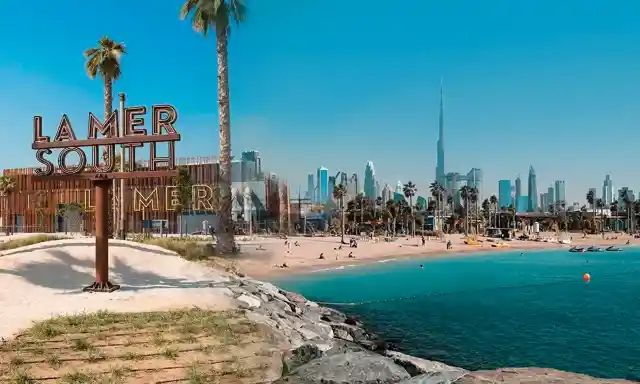
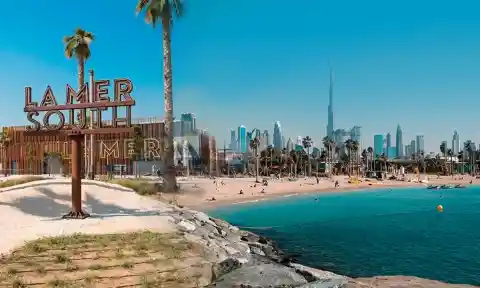
Its vibrant street art, modern design, and palm-lined walkways create a chic yet casual atmosphere. Whether you're into water sports, beach lounging, or exploring cafes and boutiques, La Mer provides a picturesque escape by the sea for families, couples, and solo travelers alike.
The Dubai Opera
Dubai Opera is a stunning cultural landmark located in the heart of Downtown Dubai. Designed in the shape of a dhow, a traditional Arabian sailing vessel, this multi-purpose performing arts center hosts a diverse range of events including opera, ballet, concerts, theater, and conferences.
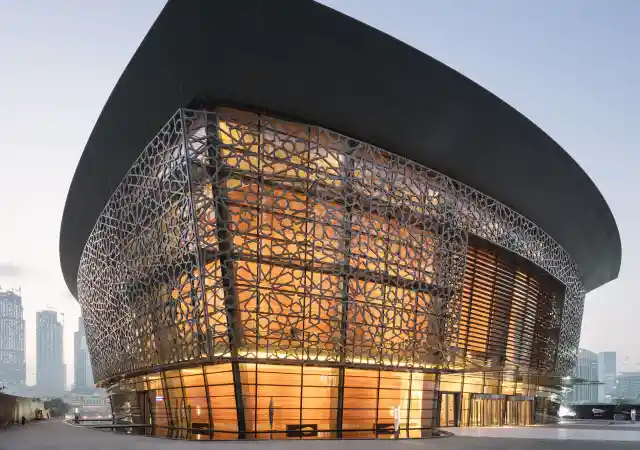
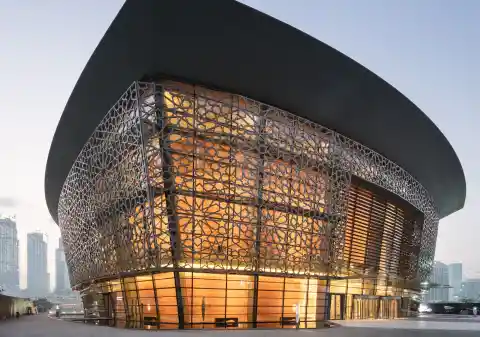
With a seating capacity of around 2,000, it offers state-of-the-art acoustics and an elegant atmosphere, making it a hub for art and culture in the city. Whether you’re a fan of classical music or contemporary performances, Dubai Opera is a must-visit destination for those seeking world-class entertainment.
Jumeirah Archaeological Site
The Jumeirah Archaeological Site stands as one of the UAE’s most important historical locations, providing a window into the ancient history of the region. Originating from the 6th century, this site was once a bustling trading hub along caravan routes connecting Oman and Iraq.
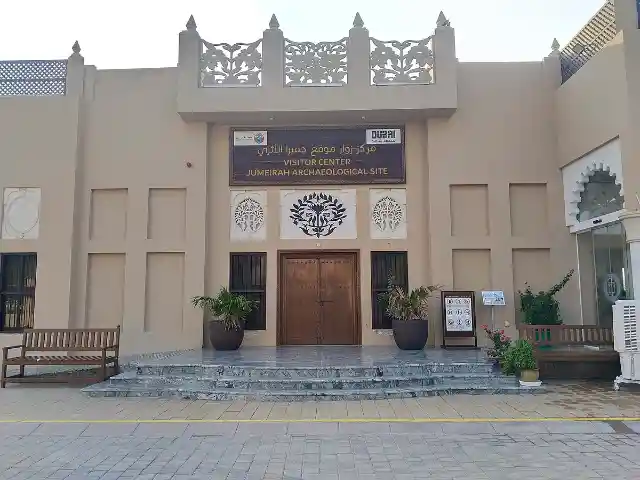
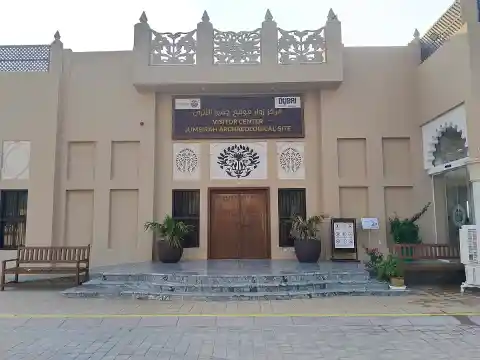
Excavations have uncovered various artifacts, including pottery, coins, and tools, which offer valuable insights into the everyday lives of those who lived there. Visitors can wander among the ruins of this early settlement and deepen their appreciation of Dubai’s cultural and historical roots.
Al Qudra Cycling Track
The Al Qudra Cycling Track is a favorite destination for cycling lovers, featuring an extensive, picturesque route winding through Dubai’s desert terrain. Stretching over 80 kilometers, it attracts both professional and casual riders thanks to its smooth paths and stunning natural scenery.
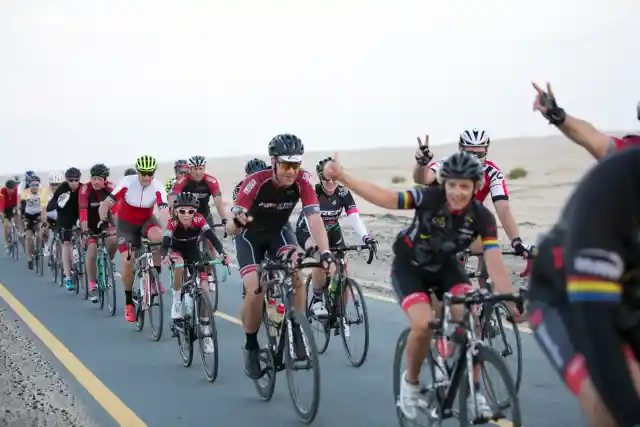
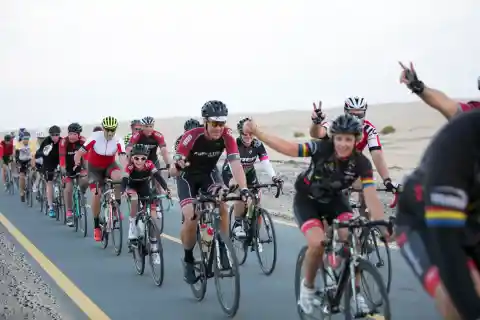
Along the way, cyclists can enjoy breathtaking views of the Al Qudra Lakes and may even spot native wildlife like oryx and gazelles. Whether you pedal at dawn or dusk, Al Qudra provides a peaceful retreat to enjoy nature while getting a good workout.
Dubai Miracle Garden
Dubai Miracle Garden is a breathtaking floral wonderland, home to more than 50 million blossoming flowers arranged in beautiful and intricate patterns. Situated in Dubailand, it holds the title of the world’s largest natural flower garden.
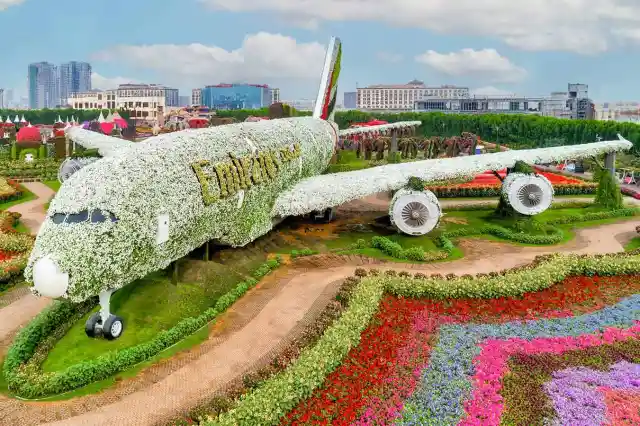
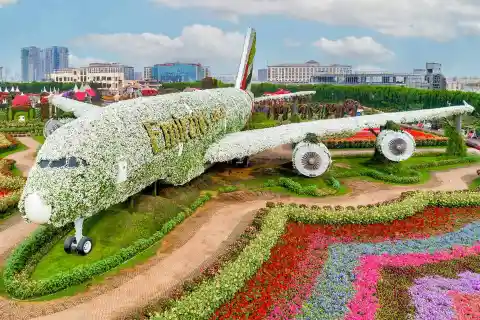
Visitors can marvel at elaborate creations such as heart-shaped arches, houses draped in flowers, and life-sized floral sculptures. With fresh themes and designs introduced every season, each visit offers a new and captivating experience. This vibrant garden is an ideal spot for nature enthusiasts and photographers seeking a splash of color and creativity.
The Palm Jumeirah Boardwalk
The Palm Jumeirah Boardwalk is a picturesque walkway that runs along the outer crescent of the famous Palm Jumeirah island. It provides stunning views of Dubai’s skyline, the Arabian Gulf, and upscale beachfront resorts. This popular spot is perfect for relaxed strolls, jogging, or cycling.
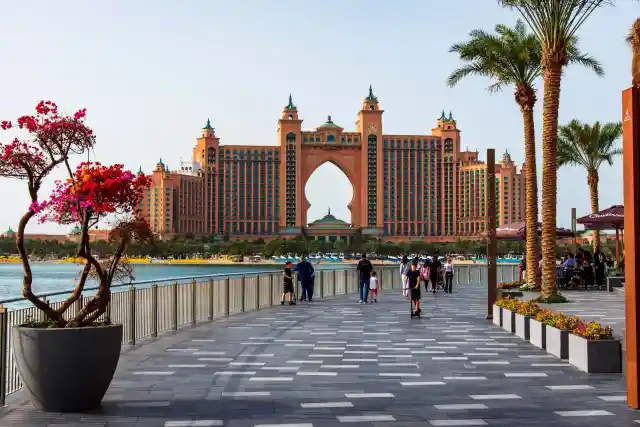
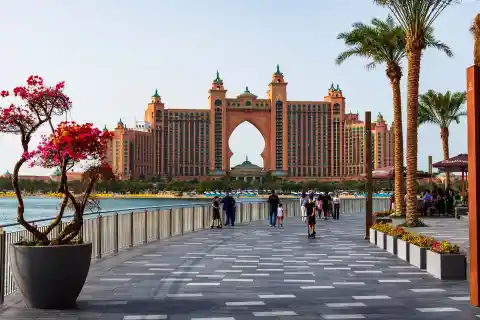
Along the path, visitors will find food trucks and plenty of seating areas, making it a great place to unwind and soak in the sea breeze. The boardwalk also offers an excellent vantage point to watch beautiful sunsets over the Gulf.
Dubai Coffee Museum
Tucked away in the Al Fahidi Historical Neighborhood, the Dubai Coffee Museum is a treasure for both coffee enthusiasts and history lovers. This charming museum delves into the fascinating history and cultural importance of coffee worldwide, with special attention to the Middle East.
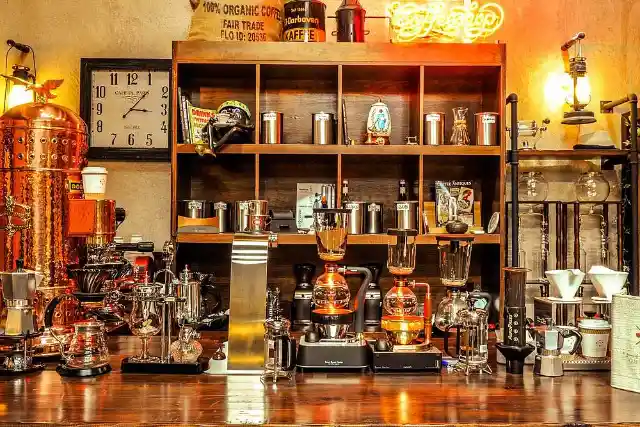
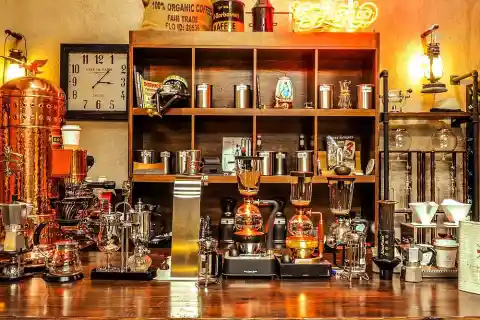
Visitors can discover traditional brewing techniques, admire antique coffee grinders and pots, and even taste various coffee blends. With its warm ambiance and expert guides, the museum offers a delightful experience for anyone curious about the craft of coffee-making.
The Etihad Museum
Situated in Jumeirah, the Etihad Museum is devoted to showcasing the history and creation of the United Arab Emirates. Its sleek, futuristic architecture takes inspiration from a manuscript, representing the signing of the UAE’s constitution.
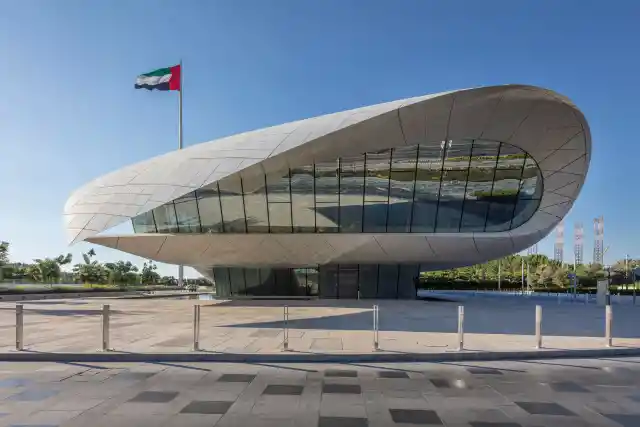
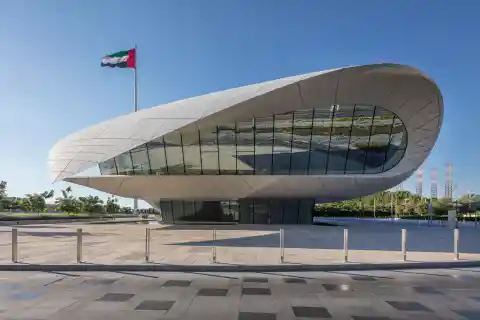
Inside, visitors can explore interactive exhibits, artifacts, and multimedia presentations that narrate the story of the nation’s founding fathers and the key events that led to the union in 1971. This museum offers a comprehensive insight into the UAE’s path to nationhood and is a must-see for anyone curious about the country’s history.
The Ripe Market
The Ripe Market is a lively community market held at different spots around Dubai, featuring an array of organic produce, handmade crafts, and artisanal products. It attracts both locals and visitors, creating a vibrant setting where people can shop for fresh fruits and vegetables, listen to live music, and explore unique creations by local artisans.
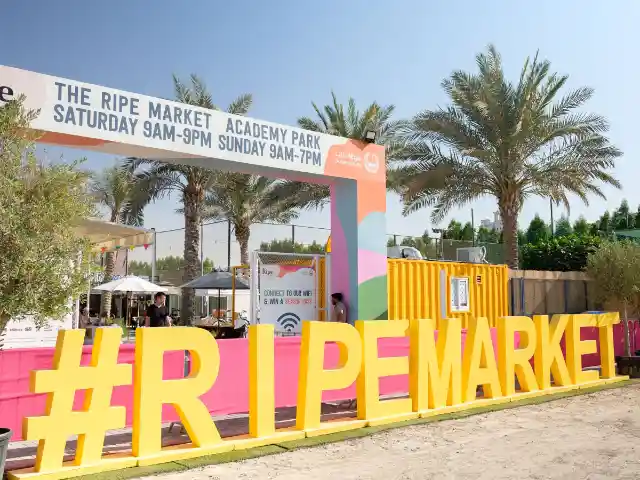
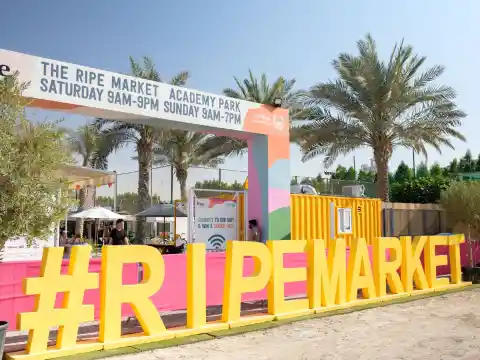
The market highlights Dubai’s increasing commitment to sustainability, healthy lifestyles, and supporting small-scale businesses, making it a favorite destination for those seeking an authentic local experience.
XVA Art Hotel
Situated in the heart of the Al Fahidi Historical Neighborhood, the XVA Art Hotel offers a unique blend of art, culture, and hospitality. This boutique hotel boasts individually styled rooms that beautifully merge the region’s rich heritage with a contemporary artistic flair.
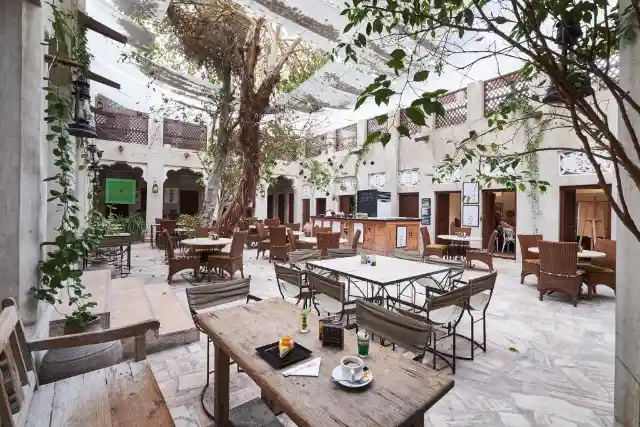
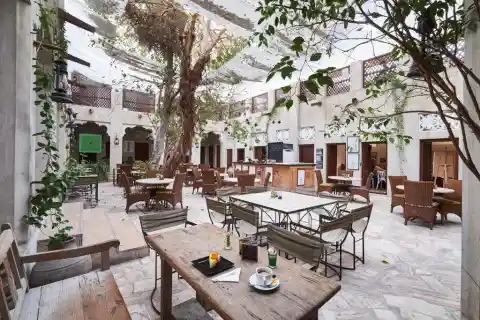
It also features a gallery that exhibits modern Middle Eastern art alongside a vegetarian café serving tasty and wholesome dishes. The XVA Art Hotel provides a peaceful and culturally rich retreat for travelers looking for an intimate and inspiring stay in Dubai.
Zabeel Park
Zabeel Park stands as one of Dubai’s biggest and most frequented green spaces, providing a refreshing natural retreat within the bustling city. Covering 47.5 hectares, it boasts lovely gardens, serene lakes, and numerous recreational options such as playgrounds, barbecue spots, and jogging paths.
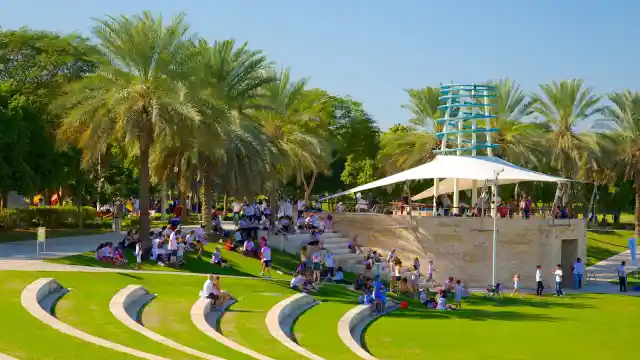
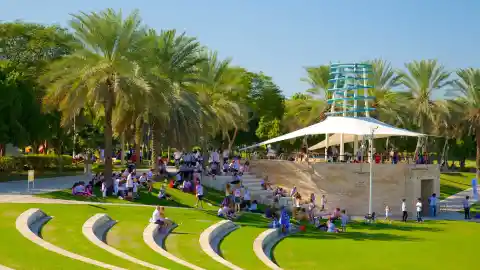
The park is also famous for housing the Dubai Frame, offering breathtaking panoramic views of Dubai’s skyline. Combining scenic beauty with modern facilities, Zabeel Park is an ideal destination for family gatherings, picnics, and outdoor fun.
The Lost Chambers Aquarium
Situated within Atlantis, The Palm, The Lost Chambers Aquarium provides a magical underwater journey inspired by the legendary lost city of Atlantis. Guests can wander through interconnected tunnels and chambers housing more than 65,000 marine animals, such as sharks, rays, and vibrant fish.
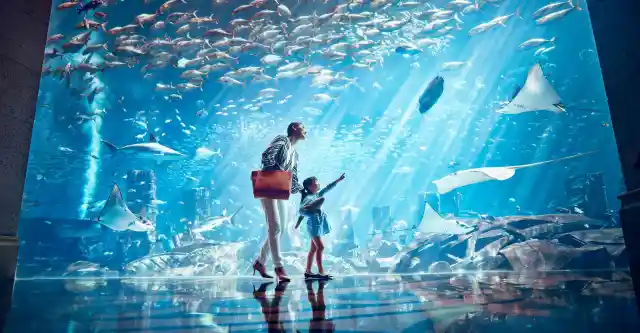
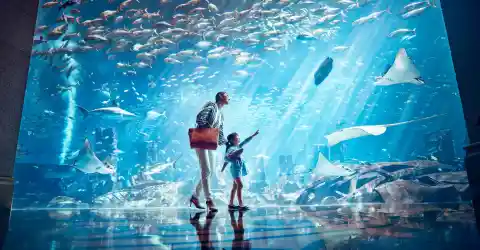
The aquarium also features interactive elements like touch tanks, allowing visitors to engage closely with the sea creatures. With its captivating aquatic exhibits and enchanting atmosphere, The Lost Chambers is a top destination for families and marine life lovers.
Jebel Ali Beach
Jebel Ali Beach offers a peaceful escape from Dubai’s busy tourist hotspots. This calm stretch of shoreline is cherished by locals and visitors looking for a quiet place to unwind by the sea.
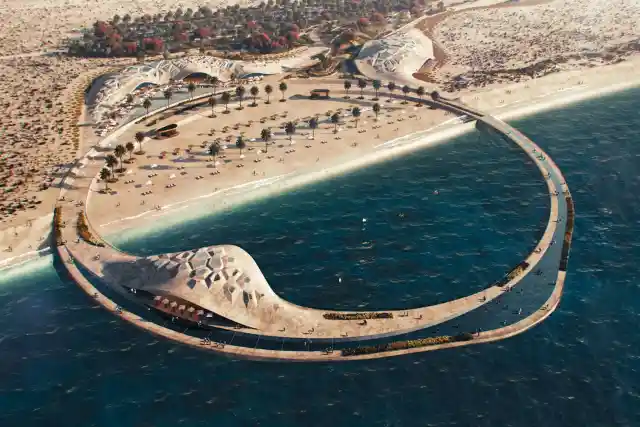
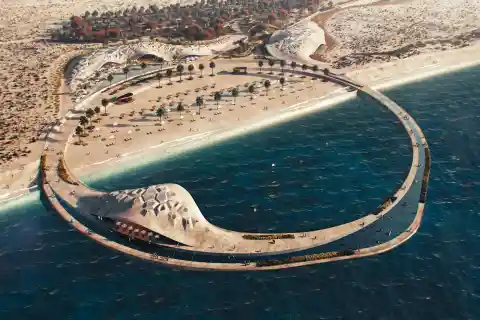
With its crystal-clear waters and gentle sandy shores, it’s perfect for swimming, sunbathing, and beach activities. The beach is also well-known for kite surfing and other water sports, providing a laid-back and uncrowded setting to enjoy Dubai’s natural coastal beauty.
The Dubai Desert Conservation Reserve
Covering 225 square kilometers, the Dubai Desert Conservation Reserve is a large protected area dedicated to preserving the UAE’s natural desert environment. It shelters diverse wildlife such as Arabian oryx, gazelles, and more than 120 species of birds.
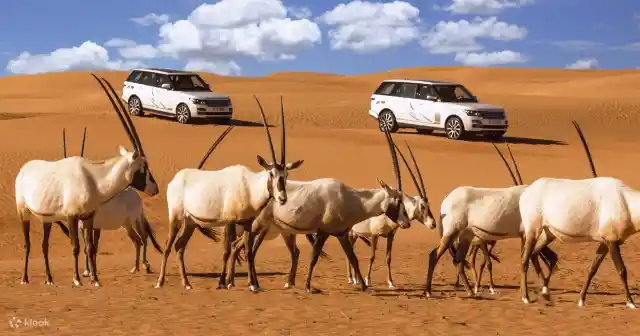
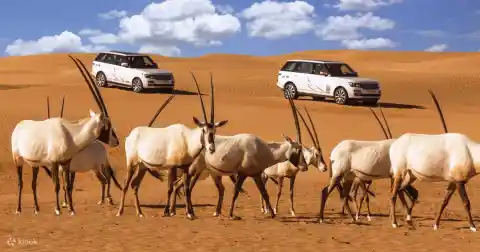
Visitors can enjoy the stunning desert landscape and its inhabitants through guided safaris, camel rides, and stays at luxury desert resorts. Focused on conservation and sustainable tourism, the reserve provides a genuine and eco-friendly way to experience the desert’s unique beauty.
Al Noor Island
Situated in Sharjah near Dubai, Al Noor Island is a distinctive spot where nature, art, and architecture come together. The island boasts vibrant gardens, impressive art installations, and a stunning butterfly house housing over 500 exotic butterflies.
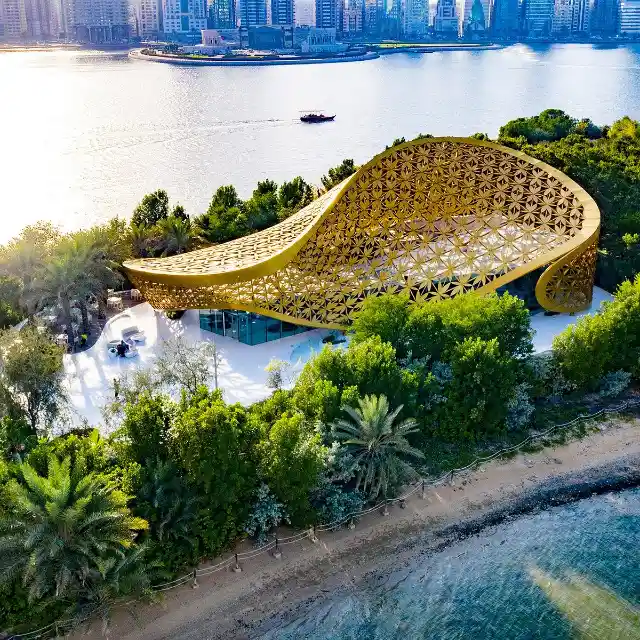
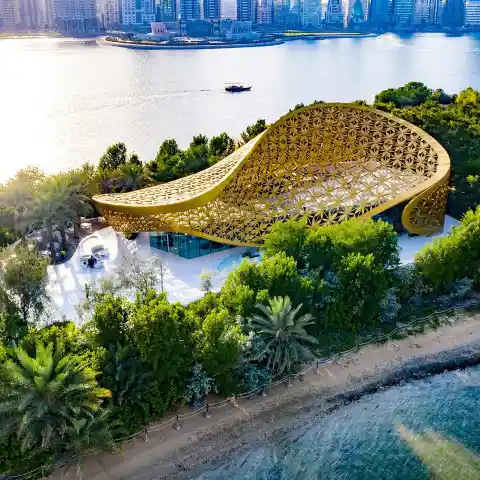
Visitors can wander along glowing pathways, unwind in the calm surroundings, and soak in the peaceful ambiance. Al Noor Island provides a serene escape from the city, perfectly combining natural splendor with artistic creativity.